Brazil Psych,Prog,Tropicalia,Latin,Jazz,Samba Rock,MPB,Covers Albums & Photos

Brazil Psych,Prog,Tropicalia,Latin,Jazz,Samba Rock,MPB,with full Albums mixcloud playlist
click up next & listen only first 20 playlists,if there are,from blogger page,for more playlists,click the link above and go in the mixcloud page
Tropicália, a very Brazilian Revolution: The story of the political and artistic struggle behind the bewitching rhythms of Brazil
Music is one of the integral parts of the Brazilian identity, to such an extent that any thoughts of the country, its culture, people and places comes with a mental samba soundtrack. From the overtly musical Carnival, to the dancing feet of its footballers, sometimes nicknamed the Samba Stars, everything seems to happen with a rhythm that is uniquely Brazilian.
But just as Brazilian music is one of the country’s main cultural exports, its roots come from cultural imports – immigrants from Africa, Caribbean influences, folk from the north country, and elements of American music both black and pop make up what Brazilian music is today. Now embraced around the world as a celebratory, feel-good artform, Brazilian music hasn’t always enjoyed such a cheerful time. In fact in the 1960s, a musical movement emerged that was the source of civil unrest and political persecution, as well as great artistic expression. Its name was Tropicália.
Back in the 1930s, samba music emerged as the national style, but later, in the 1950s, a new sound called bossa nova took up the baton and broke out of the country to become a global musical sensation. Air travel was taking off in a big way in the early 1960s, and when Joao Gilberto sang of the Girl from Ipanema in 1964, worldwide audiences lapped up the thought of idyllic Brazilian beaches and bronzed beauties. Meanwhile, in the real world, the country was in the grip of a military coup, with a dictatorship seizing power amid fears that the incumbent government was about to follow Cuba down the road to left-wing isolationism.
Increasing industrialisation in the developing country drew tens of thousands of migrant workers to the major cities from the countryside, leading to the rapid growth of the shanty towns known as favelas. They brought with them the traditional sounds of their indigenous “indian” forefathers, such as maracatú from the north country, which blended with samba to produce a new sound in the hands of musicians such as Jorge Ben. His smash Mas Que Nada really kickstarted the international interest in Brazilian music, while at home, traditional Brazilian music festivals shown on the emerging medium of TV proved a huge hit with the locals. Pop imports by the likes of The Beatles were absorbed, and from this melting pot emerged distinct styles that supported differing political viewpoints.
Political protest was not, in 1967, repressed to a large extent. From the region of Bahia, a group of musicians emerged who blended bossa nova with pop, rock’n’roll and psychedelia into a style that became known as Tropicalia. Opposed to the military dictatorship, they were also against the left-wing ideologies too, and the music’s use of electric guitars – a direct influence of American music – infuriated the left as much as the anti-repression lyrics agitated the ruling military. Spearheading the Tropicalia movement were Gilberto Gil and Caetano Veloso from Salvador. Joining forces with more rock bands such as Os Mutantes and performance artists and poets including Tom Zé, the Tropicalistas, as they were called, began an exchange of artistic and political ideas. The results quickly incurred the displeasure of the authorities.
Following the death of a university student at the hands of the military, the March of One Hundred Thousand was held on the streets of Rio de Janeiro in 1968. Gil and Veloso were front row figures, along with a host of other musicians from the left-wing, but it was only the two prominent Tropicalistas who were arrested by the government. A law had just been passed allowing arrest and detention without reason, and hundreds of suspected dissidents “disappeared during this time”. The pair, frightened but defiant, were held in prison for weeks before being transported back to their hometown and forbidden to leave. After four months’ detention the musicians were encouraged to get out of the country. They moved to London in 1969.
Although depressed at their exile, London wasn’t a bad place to find oneself at the end of the sixties. Musically, the big influences The Beatles and the Rolling Stones were at their peak, and other bands including Pink Floyd and Traffic were also providing interesting ideas for Gil and Veloso to absorb. Taking Tropicalia overseas, the two recorded in England—and in English—spreading the word about events back home and developing musically through collaborations at several key festivals and concerts, including Glastonbury in 1970.
It was 1973 before Gil and Veloso were allowed back to Brazil with the promise of freedom to make music without hindrance. The promises proved empty, however, as all live music still had to be approved in advance by the state censors and the Tropicália movement wasn’t ready to bow down by any means. Although they still regularly fell foul of the authorities, they didn’t suffer to the same extent as they had in the previous decade. The Tropicalistas were also back on home soil and perfectly placed to inspire the next generation of Brazilian musicians in the 1970s like Milton Nascimento, who would go on to be one of the country’s most successful musical exports, credited with popularising Brazilian music on the world stage to an extent that only the likes of Carmen Miranda had done before, back in the days of 1930s samba....by...Rob Wilkes ....~
A lot of the most radical art of the 1960’s and 70’s never made it into museums, or did so only in residue form, like swept-up confetti after a party. This was certainly true of art based on actions and interactions rather than on objects. A thing of beauty may be a joy forever, but a beautiful gesture? Did you see it? No? Too late. It’s gone.
“Tropicália: A Revolution in Brazilian Culture,” at the Bronx Museum of the Arts, is an absorbing if inevitably diffuse attempt to recapture such a fugitive art, one that flourished for a mere five years, from 1967 to 1972. Tropicália, or Tropicalism, wasn’t a style or a movement as much as an atmosphere, a rush of youthful, cosmopolitan, liberationist optimism that broke over Brazil like a sun shower and soaked into everything: art, music, fashion, film, theater, literature.
Almost instantly it gave rise to a crop of startling hybrids: American psychedelic rock cross-pollinating sambas, political resistance with the pleasure principle, Brazilian art with international art. The new growth was dense and enveloping: you looked at it, listened to it, tasted it, breathed in its perfume, lived in it.
Or you didn’t, in which case the whole phenomenon was puzzling at best, and threatening at worst. To the military authorities then in power it was a clear and present danger. They let the party go on for a while, then clamped down hard. By 1972 Tropicália was effectively over, leaving scraps of itself — photographs, films, recordings, manifestoes and fragile pieces of art — behind.
The show, organized by Carlos Basualdo, a curator at the Philadelphia Museum of Art, is largely made up of such scraps. In historical exhibitions this could be a serious liability. You would be getting only a fragmented view of a larger whole. But even at its peak Tropicália was a thing of many parts, some of which, like art and pop music, connected only obliquely. It brought global and Brazilian culture together in barely digested combinations. Politically it was oppositional without being ideological, or rather it embraced many ideologies.
The name Tropicália actually derived from art, specifically from a single work by Hélio Oiticica (1937-80), a leading figure of the Brazilian avant-garde. He was born into a family of leftist intellectuals in Rio de Janeiro and went to school there in the 1950’s with a group of remarkable contemporaries, among them Lygia Clark and Lygia Pape, who are major presences in the Bronx show.
Although Mr. Oiticica’s main work at the time was utopian, Mondrian-inspired abstract painting, he also experimented with ephemeral materials and tactile forms. In 1964 he started attending a samba school in one of Rio’s favelas, or shantytowns, and his immersion in this performance-based popular art transformed his work.
He turned his attention from making gallery-bound objects to environments for viewer participation, plain and practical in design but with certain “Brazilian” elements added. The result was an exoticized, sensorily stimulating, walk-in version of modernist abstraction. When he exhibited the first of these ramshackle, funky constructions publicly in 1967, he titled it “Tropicália.”
A reproduction of that piece, complete with live plants and parrots, enclosures modeled on favela architecture, and a single television blasting away, is the centerpiece of the Bronx show, where it melds into a second Oiticica piece, “The Eden Plan” (1968-89), equipped with a wading pool, “nests” of dried leaves and a tent with piped-in music.
Mr. Oiticica was explicit about the music to be played: songs by Gilberto Gil and Caetano Veloso, two of the country’s hottest young music stars. The dreamboaty Mr. Veloso was especially popular. In 1968, in a bow to Mr. Oiticica, he titled an album “Tropicália,” and in the process he gave the name to an intense moment of Brazilian pop culture.
Many people associate Tropicália exclusively with the music, which combined bossa nova, Euro-American pop and traditional Brazilian material, woven around anti-establishment lyrics. It’s fabulous stuff, and you can get a concentrated dose of it in a series of video clips playing in the Bronx Museum’s handsome new architectural extension.
Among the clips are shots of Mr. Gil and Mr. Veloso singing to enraptured crowds, and tropicalist fellow travelers like the former bossa nova stylist Gal Costa, dressed like Little Richard and sounding like Janis Joplin, and the band Os Mutantes. Nearby is a selection of Flower Powerish album covers and a lavish display of Tropicália fashions. Made of fabrics printed with tropical flowers, birds and vibrant abstract patterns, the clothes perfectly embody the marriage of Op, Pop and Braziliana that Mr. Oiticica envisioned.
These are remnants of a classic 1960’s scene. And as in everything 1960’s, tensions buzzed away under the surface. Despite or because of its popularity, Tropicália drew fire from both ends of the political spectrum. To the left its commercial success was deeply suspect and its espousal of hedonism — “Joy, Joy” was the title of one of Mr. Veloso’s hit songs — as a mode of subversion, regressive. Mr. Oiticica shared these concerns.
For the right the matter was simpler. Tropicália was part of an international revolutionary impulse, and it had to go. In 1969 Mr. Gil and Mr. Veloso played some gigs at a nightclub where there was a banner, designed by Mr. Oiticica, with the words “Be an outlaw; Be a hero.” Soon after, they were jailed and then went into exile. Mr. Oiticica also left. Tropicália was over.
Or at least it was subdued. Mr. Oiticica, who moved to New York, continued to think and write about it. He was, and remains, its real theoretician. Mr. Veloso, an international celebrity, has tended to smooth over Tropicália’s sharper edges while keeping its spirit alive. Mr. Gil, the current minister of culture in Brazil, periodically invokes it as a political model while remaining ambiguous about how its politics were defined.
They were defined of course by ambiguity, a refusal of dogmatism that, ideally, opened the path for a carnivalesque collective activism, one that has parallels in certain “interventionist” political art today. The show addresses the question of Tropicália’s continuing influence by including work by several young artists made in response to it.
A stick-on mural of classic tropicalist images orchestrated by the Brazilian-born artist Assume Vivid Astro Focus generates a celebratory energy. But pieces by two young artists based in Brazil, Rodrigo Araujo and Marcos Reis Peixoto, who goes by the name Marepe, allude to continuing social inequities that Tropicalism never addressed.
In the end it is Mr. Oiticica’s work that seems, particularly in a museum context, most radical and most alive. For one thing, it is there but not there: almost everything under his name in the show is a reproduction of an original either fragile beyond use or gone. For another, his is truly an art of gestures, not frozen in time, but repeated and translated differently by each visitor who walks into his “Tropicália” environment and makes it his or her own. If we engage with his art, it is something; if we do not, it is nothing. Its creation is our responsibility..... By Holland Cotter....~
In this survey of late-1960s Brazil, the most striking things are the least expected. In a small room are a collection of film fragments focusing on the musicians Caetano Veloso and Gilberto Gil. In one, Veloso is shown in a 1967 television performance. He could scarcely look more nervous, and delivers the stiffest imaginable performance. He can barely hear the band, and sings sharp throughout. His audience are enraptured, but sit in rows, politely applauding.
A second television performance, a year later, is documented through a series of stills and an audio track. This time, Veloso sings ‘E Prohibido Prohibir’ (‘It is Forbidden to Forbid’), commenting sharply on a military regime that was then entering its most repressive phase. He’s greeted by slow handclaps, and the show ends in uproar. Veloso cries: ‘If your politics are as bad as your aesthetics, then we’re done for.’
Two other fragments are worth mentioning: Veloso and Dedé Gadelha on their wedding day in Salvador da Bahia in 1967, at the church, and then the beach, striding arm in arm into the sea, the most improbably good-looking couple; and Gilberto Gil (now Brazil’s minister of culture) in exile in London in 1969, in a few grainy Super 8 images. These fragments are by turns charming, terrifying and impossibly sad. Veloso and Gil are highly charismatic public figures, and their espousal of an idealised democracy is part of their charm. But the context of violence, poverty and racism exposes it as myth.
These documentary fragments are the best things here. Nothing else in this rambling, incoherent and often silly show comes close. The centrepiece is an environment by Hélio Oiticica, whose reputation has grown rapidly since his early death in 1980. It is easy to see why: it’s gonzo art, party-time art, stoned beach-bum art. Not a trace of irony or intellect for the most part, and hence wonderfully saleable. And some of it is pretty good. But some of his early installations are rambling affairs that belong to another time. In ‘Eden’, you take off your shoes and socks and wander around a fake beach, dotted with tents in which you can have various different experiences. It’s like a free festival: you half expect Hawkwind to show up, handing round the acid tabs. The problem is they don’t, and you are returned to the chilly, unforgiving Barbican.
Another participatory work is ‘Roda de Prazer’ (‘Wheel of Pleasure’) by Lygia Pape, a series of ceramic bowls containing brightly coloured fluids, which the visitor is invited to taste by means of droppers. Every one I tried tasted unpleasantly of bubble gum. Lygia Clark is represented by some very nasty wearable art, the nadir of which is a rubber pregnancy suit for men. Unzip the midriff and a fat, pink foetus flops out.
The show’s lack of coherence is partly due to the historical work, varied in both form and quality. But it is also to do with the way it has been curated. It falls between historical survey and themed show; in the end it is neither. There’s not enough order or precision about the history, and the curators rarely achieve a visual spectacle.
Richard Williams.......~


The Tropicália movement burst into life in 1967, incorporating visual arts, poetry and music. It was a cultural revolution heavily influenced by the concept of ‘cultural cannibalism’, a phrase coined by Oswald de Andrade in his Manifesto Antropófago in 1928. ‘Cultural cannibalism’ is based on the idea that a nation’s culture can be made stronger and richer by blending a wide range of disparate cultural elements, both national and international, in order to create something new and unique. In musical terms, the Tropicália movement championed this concept by marrying classical Brazilian bossa nova music with the Afro-Brazilian rhythms of samba and the rock and roll riffs and jagged guitars of London’s swinging sixties. The product of this cultural fusion was an exciting new genre of politically conscious music. Tropicália countered the oppressive military rule of the time through its overt defiance of the strict censorship that was being imposed on Brazilian culture.
Despite only spanning a five year period between 1967 and 1972 (some argue its lifespan was even shorter than this due to two of the founding musicians being arrested by the military government in December 1968), Tropicália has undoubtedly left a lasting impression both within and outside of Brazil. As well as paving the way for modern Brazilian pop music, the movement influenced countless international musicians including David Bowie, Beck, Damon Albarn and David Byrne. However, perhaps the biggest indicator of its enduring legacy lies with Gilberto Gil, one of Tropicália’s most famous musicians. Having spent his youth battling for socio-political change within Brazil, leading to a brief period of incarceration in 1969 and a stint spent living in exile in the UK, Gilberto Gil went on to assume the title of Brazil’s Minister of Culture between 2003 and 2008; a position from where he could proudly promote the incredible diversity of Brazilian culture.....~
Tropicália: Portrait of a Revolution
It was exactly forty years ago that the musical revolution that came to be known as Tropicália was introduced to Brazil, and the world. Tropicália's genesis can be dated with some precision. It came when two musicians in their mid-twenties, Caetano Veloso and Gilberto Gil, courageously took to the stage at a 1967 song festival in São Paulo with compositions that they knew would sorely stress the boundaries of musical taste. Their performance was epoch-defining. It was a kind of big bang from which much that came afterward in Brazilian pop music history evolved.
It was exactly forty years ago that the musical revolution that came to be known as Tropicália was introduced to Brazil, and the world. Tropicália's genesis can be dated with some precision. It came when two musicians in their mid-twenties, Caetano Veloso and Gilberto Gil, courageously took to the stage at a 1967 song festival in São Paulo with compositions that they knew would sorely stress the boundaries of musical taste. Their performance was epoch-defining. It was a kind of big bang from which much that came afterward in Brazilian pop music history evolved.
In part to needle what he expected to be a conservative audience, Veloso had selected an eccentric, long-haired band of Argentine rockers for his backup band, at a time when long hair was still nearly taboo, and delivered a song, "Alegria, alegria," or "Happiness, Happiness," which electrified the booing audience into silence. "Alegria, alegria" was an unmistakable departure from Brazil's songwriting tradition. It was an erudite reworking of archaic genres (the song is set to the rhythm of a marchinha, an Afro-Brazilian form influenced by ragtime in the 1920s) organized around a trinity of electric guitar chords. The song's contemporary references to Coca-Cola and television, and the absence of comfortable nostalgia or sentimentalism marked it as an unmistakable artifact of the sharp-edged, uncertain present in a Brazil of military dictatorships and political ferment.
The next day, at the same festival, Veloso's partner in crime, Gil, sang an equally provocative tune, "Domingo no parque," or "Sunday in the Park." The lyrics centered on a double-murder committed by a jealous lover, and the musical arrangement was clearly influenced by the Beatles. However, the song also contained the ubiquitous sounds of a berimbau, a traditional, resonating instrument of African origin made of a gourd, a wooden bow and a metal string. It was a novel melding of tradition and the cutting-edge.
The two musicians had intentionally set out to trigger a musical upheaval, and they succeeded. Their movement, Tropicália, went on to sweep away the petty divisions that up to then had divided Brazilian rockers from bossa nova die-hards and old school samba crooners. Tropicália would combine the cosmopolitan sensibilities and lyrical precision of rock with the entire geological depth of Brazil's considerable musical tradition.
ACQUIRING THE TASTE
The music of Tropicália (also sometimes known as Tropicalismo) has been with me nearly my whole life , though it has taken me nearly as long to fully acquire a taste for it. In the late 1970s in Argentina, my parents, uncles and aunts were still listening to the singers that had championed the movement during its short but frenzied peak a decade before in neighboring Brazil. But it wasn't until I was myself living in Rio de Janeiro in 2000 that I began to make the music my own. At an outdoor market near my apartment in Copacabana Beach I bought Tropicália 2, an album Caetano Veloso and Gilberto Gil recorded in the early 1990s celebrate the 30th anniversary of their friendship and the 25th anniversary of Tropicália.
I bought the album because I recognized the two names as belonging to perhaps the most famous of Brazil's many internationally known musicians, but the contents surprised me. This was not smooth Brazilian pop: the tracks were weird enough that many of them did not register beyond leaving an impression of general strangeness and what seemed to be swirling, mysterious reinterpretations of older musical forms. The problem was that I was not familiar with these forms in their original version. Challenging as the album was, it had a discernible, melodic heart. It had a social conscience as well (the political urgency of a track called "Haiti" was unmistakable), and it had many beautiful moments, such as the sublime, flute-laced intro to "Baião Atemporal." It was this album which kept me hooked on Brazilian music from then on, though I pursued my interest only in a scattershot manner over the next half-dozen years.
Then, something decisive happened. By chance, I began listening to samba records, mainly to older artists from Rio's slums that had recorded a number of landmark albums in the 1970s. These were people like Cartola, a gravelly-voiced singer, composer, and co-founder of the Estação Primeira de Mangueira samba school in 1928. He was rediscovered in the 1970s, after surviving decades of total obscurity. Though I didn't know it at the time, this rediscovery of Cartola happened in part thanks to the interest in musical tradition encouraged by Tropicália itself. My musical journey was beginning to double back on itself. Samba led me, by a maze-like series of artists and discographies, to bossa nova (samba refined and rarefied), and finally, to Jorge Ben.
I had arrived. Jorge Ben's 1976 album África Brasil was a revelation. I didn't need fluency in Brazilian rhythms to understand that this was a masterful remixing of centuries of musical history, delivered in the funky idiom of the 1970s. Not only that, but Ben transformed his album into a kind of document for the Black experience in Brazil, working Egyptian legends, slave history, and occult philosophical knowledge into his lyrics. Every minute in the album yielded ideas and surprises. While it was shot through with the spontaneity of genius, it was also clearly a unified work, deeply meditated and stitched together with allusions and themes that made the album spin in my head for days, beginning to end, and end to beginning, like a gleaming, baroque Ferris Wheel.
I didn't know it when I first heard him, but Jorge Ben was a kind of godfather to the Tropicália movement. He was acknowledged as a precursor, worshipped and somewhat feared by Veloso and Gil, who sometimes trembled at the knees in the shadow of Ben's prodigious talents. It was Ben's earlier albums in the 1960s that pointed the way to what Tropicália ultimately accomplished. Veloso himself pays homage to Ben in his brainy 1997 book that tells the story of Tropicália's origins and meteoric rise: Verdade Tropical (published in English by Da Capo Press in 2002). Veloso writes: "(Jorge) Ben became a symbol, a myth, a master for us."
THE NEW IN THE OLD
It's no surprise, then, that after listening to Ben's music I also was able to process, if not love, anything the Tropicália crowd threw my way, whereas before much of their music mystified me. Often weird, occasionally abstruse and absurd, always conceptually elaborate, the tropicalistas of the late 1960s and early 1970s were as much about ideas as they were about music.
With Ben's music as a sort of map, I could enjoy the rocked-out, feedback-heavy, portions of Gal Costa's two-headed monster of a live album (Fa-Tal/Gal a todo vapor); whereas before I could only stomach her more accessible and mellow acoustic set. Now, I could make a kind of sense out of Jards Macalé's music. Macalé, a late, radioactive rhizome offshoot of Tropicália, was all about turning pop music inside-out with groove-happy deconstructions or haunting melodies that always seemed on the verge of fading into dissonance, but never did.
I still preferred Ben. A one-man music laboratory, he seemed to arrive at his inventions effortlessly, while Tropicália sometimes was heavy-handed (as Veloso himself admits in his book). Both were after the same thing, though: excavating the new out of the old, delivering a sound that while filigreed with tradition was completely a new proposition.
In his book Veloso quotes Brazilian critic and poet Augusto de Campos on the concept of novelty. "The old that was once new is as new as the newest of the new," writes Campos, whose concrete poetry movement heavily influenced Tropicália. Campos is offering more than just a tongue-twister with this formulation. What he's proposing is a different attitude toward the past than that espoused by the traditional posture of revolutionaries in the arts. Instead of throwing out the past, he suggests a more transversal view of cultural history in which the peaks of creative efflorescence across the ages are joined into a kind of timeless, immortal New.
Much the same concept was advanced by Veloso on the back jacket of his 1967 joint album with Gal Costa, Domingo: "I no longer desire to thrive on nostalgia for other times and places; on the contrary, I wish to incorporate that nostalgia into a future project." According to Veloso, this is as close as he ever got to putting the Tropicália manifesto into writing.
THE LIMITS OF UTOPIA
Of course, Tropicália's future was not to be limitless. In fact, the movement's real existence was rather brief: it was launched in 1967 and had run out of steam by 1972. Brazil's military government did what it could to suffocate a movement that consciously sought to create the soundtrack to Brazil's counterculture, with lyrics that were critical of hypocrisy in the upper classes and the country's abysmal economic inequality. Gil and Veloso were imprisoned and exiled to London for several years, returning to record some final thoughts on Tropicália in 1972. Apart from the repression its artists suffered, the movement's self-consciously vanguard approach gradually rendered itself irrelevant by having largely achieved its principal aim: clearing prejudices from the musical establishment. Like many revolutions, its star faded once its message had seeped far enough into popular consciousness. What was left was an afterglow of radical acoustic open-mindedness in which MPB, or música popular brasileira, continues to bask today, to its great benefit.
Veloso writes an accurate eulogy for Tropicália in his book, evoking the grand aims and partial victories:
"We had not attained socialism, had not even found its human face; neither had we entered the Age of Aquarius or the Kingdom of the Holy Ghost; we had not overcome the West, had not rooted out racism or abolished sexual hypocrisy. But things would never be as they had been."
In other words, Tropicália had sought a musical and social utopia and failed. Yet its failure is one of the greatest successes in the history of a great musical nation........~
Brazilidelica: the ultimate cult
In the city of Recife, a small but musically vibrant metropolis far from the cultural powerhouses of Rio de Janeiro and Sao Paulo, a small group of artists created a unique and incendiary brand of music that mixed the mysticism, exoticism and adventure of psych with a localised, folkloric sensibility and instrumentation. Fiercely independent, they took control of their destiny by designing their own artwork and founded independent labels to disseminate their ground-breaking records. Despite remaining virtually unknown even in their homeland, prices for the original releases have soared in recent years, with the scene’s masterwork, Lula Côrtes and Zé Ramalho’s Paêbirú, becoming Brazil’s most expensive record, commanding up to £4,000.
These recordings are all the more remarkable given that they were produced amid a background of brutal oppression. A 1964 coup resulting in the overthrow of President João Goulart had left Brazil in the clutches of a ruthless military government whose suppression of free speech was exacted with a mixture of violence and intimidation. With artists and journalists targeted, songwriters were forced to toe the official line and compromise their artistic vision or face imprisonment. Nevertheless, despite these restrictions music not only survived during the tumultuous decade that followed but thrived, with a succession of incandescent releases that rivalled their European and US contemporaries for quality and artistry, while musicians found increasingly subtle ways to make protests against their oppressors.
While Brazil is known throughout the world for its highly rhythmic dance music, there has been a steady fixation with rock’n’roll since its beginnings, with the westernised sounds of the likes of The Jordans and Raul Seixas proving popular throughout the 50s and 60s. Though competent interpretations of pop, they were also essentially rootless, lacking the national character and Brazilian soul that pulsed through the veins of home-grown genres such as samba, bossa nova and MPB (Música Popular Brasileira).
It took the Tropicália movement, helmed by Gilberto Gil and Caetano Veloso, to light the fuse for Brazilian rock and place it firmly within its own culture. The collective of artists and musicians burst onto the country’s music scene in 1968 with the collaborative Tropicália: Ou Panis Et Cirenses album, an avant-garde carnival-esque manifesto of intent which reinterpreted rock as a fusion of psychedelia, pop, jazz and traditional Brazilian music. Paired with subsequent wildly experimental debut releases by tropicálistas such as Gal Costa, Os Mutantes and Tom Zé, a brave new path was forged for the country’s musical identity concurrently introducing psych into its musical vocabulary.
So revolutionary was this new breed of music that both Gilberto Gil and Caetano Veloso were arrested and given a three-month spell in prison and four under house arrest in 1969 before they were unceremoniously deported to London. Gil was to return to his native country in 1972, becoming one of its best known musical figureheads, while his enduring popularity and iconic status as an integral part of the nation’s artistic fabric eventually led to his being installed as Brazil’s Minister Of Culture in 2003.
Tropicália’s cultural lightning bolt became allied with the continuing influence of bands from the UK and US to prompt a boom in psych’s popularity in Brazil, with a plethora of new outfits springing up around the country. Rio’s Som Imaginario were the pick of the early bunch, their eponymous debut album deftly combining elements of Hendrix, Pink Floyd and The Beatles with Tropicalista and MPB tropes. Among many cities that spawned a nascent psych scene, Recife was initially plagued by copycat bands until local musicians Alceu Valença and Geraldo Azevedo broke free from the malaise to put the first northern Brazilian imprint on the genre. Their self-titled 1972 debut album (sometimes known as Quadrafônico) melded acid-drenched psych with regional folk and Brazilian rhythms, aided and abetted by the production genius of Rogerio Duprat, the trailblazing composer whose arrangements lay at the heart of many of the landmark Tropicália releases.
Inspired by the pair’s successful experiments, and looking to emulate the multi-media artistic endeavours of Gilberto Gil and co, Recife native Luis Côrtes founded the Abracadabra collective, a loose conglomeration of painters, writers, poets, philosophers and musicians. Seeking to perpetuate a feeling of otherness and establish their own magical Neverland away from the nightmarish suppression of life under the junta, they created new personas for themselves as Luis became Lula Côrtes (loosely translated as “gracious squid”) and, among others, Jose Vasconcelos de Oliveira became Zé da Flauta (“Joseph Of The Flute”) and Roberto Cavalcanti Albuquerque became Robertinho de Recife (“Robertinho Of Recife”).
The first missive to emerge from the collective was the eponymous debut album by Satwa, the short-lived band formed by Côrtes and Lailson, a young artist and guitar player from Pernambuco. The pair had bonded following a return from respective foreign excursions and determined to put their inspirations onto wax. Written and recorded with the pair jamming cross-legged at Recife label Rozemblit’s studio over 11 days in January 1973, it’s a coruscating collection of sun-drenched psych-folk, informed partly by Côrtes’ recent trip to Morocco which had instilled a love for Indian music and Middle Eastern tonality, and by the rock and blues music that Lailson had immersed himself in during a recent US scholarship.
At a time when censorship in the country was so draconian that newspapers were forced to run cake recipes on their front pages in place of rejected news stories, lyrics were jettisoned and the odd throaty groan is the only vocalisation heard. Instead, fuelled by magic mushrooms and other “mental muscle expanders” Côrtes’ deft sitar and Lailson’s sweetly plucked 12-string guitar power a succession of transcendent ragas and mantras. You can almost smell the incense wafting through the air on the plaintive Apacidonata or the pulsatingly rhythmic Can I Be Satwa, while what is effectively a jam session between the two is broken by a cameoing Robertinho de Recife, who lays down some powerfully emotive blues soloing on Blue do Cachorro Muito Louco (Blues Of The Very Wild Dog). The album is often credited as being the first independent release in Brazil and its evocative packaging was a typical homespun concern, as Lailson later recalled: “The design was by Katia Meseleri [Côrtes’ girlfriend, who was to play a major part in the collective], the front cover was Lula’s artwork and there are two of my drawings on the rear sleeve. We knew we were doing something new, but we never imagined we were pioneers of Brazilian independent rock.” However, given its limited, almost exclusively regional distribution, the record disappeared almost as soon as it had been released.
Unperturbed, just a few months later Côrtes was back at the studio with two more members of Abracadabra; his friend, the underground writer Marconi Notaro and an aspiring young musician named Zé Ramalho, to record Notaro’s No Sub Reino Dos Metazoários. Marconi Notaro was a poet who self-published seven volumes of verse during his lifetime, alongside this, his one and only LP, though he was to languish in lifelong obscurity, unknown even in his home town. With striking cover art, which featured a godlike image of Notaro emblazoned across the gatefold surrounded by Durer-esque fish, from an illustration by Lula who also produced, wrote, and played on the album, here was an obvious successor to Satwa. But it’s Notaro’s poetic vision and passionate yet mellow vocals that lie at the heart of a mystical work which expands on the ragas and psych-folk of before, taking them into bolder and darker sonic territory. Tapping into a similar visionary consciousness as its British contemporaries, there’s a wild Comus-like experimentalism at play with washes of rippling tape delay and heavily-echoed effects on the acid folk freak-out Ah Vida Avida, while Notaro’s poetic lyricism is at its most prevalent on Nao Tenho Imagincao Pra Mudar De Mulher, which features him reciting verse over a simple acoustic backdrop. Elsewhere, African and Latin rhythms, fuzz-drenched rock and lysergic psych all add their layers to a musical patchwork brimming with innovation. Taking the DIY ethos to its natural conclusion, the samba-driven Desmantelado even featured Côrtes on tricordio, a home-made instrument that was a cross between sitar and dulcimer and was set to become a mainstay on subsequent works.
Life among the collective meanwhile was increasingly centred round the bohemian enclave that Côrtes had set up with Katia Meseleri. Christened the House Of Beberibe, it was an oasis of freedom and counterculture amid the repression, a place where members could go and hang out, jam and listen to music, drop acid and discuss life and art enveloped by the constant fug of marijuana smoke. Beyond their inward journey, they began organising expeditions to explore the nearby hinterlands and gain inspiration for their work. Côrtes and Zé Ramalho made one such trip to the ancient stone of Inga, a mystical boulder inscribed with hundreds of engravings whose origins are still shrouded in mystery, with contemporary archaeologists undecided as to who lay behind the inscriptions; a series of figures and signs including spirals, crosses, a skull, a rose and even a strange form that appeared to represent an aircraft. To the travelling pair, who had prepared for the trip with magic mushrooms, the monument’s mysterious origins (there were even rumours of an alien provenance) combined with the atmospheric beauty of the surroundings to set in motion a chain of ideas that would develop into a piece of music paying homage to the carvings while attempting to elucidate their cryptic message.
The resultant double album Paêbirú (a word of Incan origin meaning The Way Of The Mountain Sun) by Côrtes and Zé Ramalho was to be the high-water mark for Brazilian psych; a recording that employed the full gamut of the collective’s talents to expand on the experiments of the previous releases and push the genre into new and unexplored territory. Released on Côrtes’ new Solar imprint, its elaborate gatefold artwork set the ambitious tone. Designed by Katia Meseleri, whose photographer brother Fred shot the stones with infrared film to achieve the distinctive luminous blue effect, it came accompanied by a colourful booklet packed with information about the recording alongside photos of each musician; a rare pictorial guide to virtually the entire Pernambuco psych scene at that time.
With the Rozemblit studios booked between October and December 1974, the recording was driven by a communal atmosphere as the spirit that Lula and Katia had carefully cultivated at the House Of Beberibe paid dividends. Alongside Cortes and Zé Ramalho were the likes of Robertinho de Recife, Marconi Notaro, Jarbas Mariz, Zé da Flauta, Geraldo Azevedo, Alceu Valença and Don Tronxo, all of whom improvised, chanted and sang across a mish-mash of styles that melded free jazz, acid folk, raga rock and psych with African and north eastern Brazilian percussion and some decidedly pre-kosmische rhythms.
Split into four parts, each side was dedicated to one of the elements of nature; with Earth side opener Trilha De Sumé setting the scene with chirruping birdlike flute alongside a multitude of percussive instruments and manic echoed vocals, animalistic grunts and screaming sax, swiftly followed by the Amazonian drums of the ritualistic Culto À Terra, with only Zé Ramalho’s screeching fuzz guitars to place it in the modern world. Air was represented by the likes of Harpa Dos Ares with its cavalcade of different stringed instruments draped over a backdrop of jungle chatter and whipping winds, while Zé Ramalho’s idiosyncratic nasal vocalisations are backed by the distinctive twang of the berimbau on the contemplative Não Existe Molhado Igual Ao Pranto. The Fire side is marked by a fiercer, incendiary brand of psych with Nas Paredes Da Pedra Encantada’s Hammond-driven Stooges-esque proto-metal stomper punctuated by Zé da Flauta’s screaming soprano sax. The Water side rounds the record off with a gentle wash of instrumentals as Regato Da Montanha’s sitar, fuzz guitar and tablas were played over the sound of running streams.
Limited to 1,300 copies, it was a singular masterpiece that, given wider exposure, could have been the touchstone that saw the collective fulfil its potential as Tropicalia’s natural creative successor. But disaster in form of a warehouse fire laid waste to both the master tapes and all but 300 copies of the album, left by Katia in the upper floor of her house. Its scarcity ensured initial obscurity but the uncompromising contents were to prompt a slow, steadily built cult reputation. Bootleg copies were exchanged over the years, eventually building its status as one of the country’s most legendary works and its most collectable record.
But before this calamity beset the collective, the intense outpouring of creativity that had characterised the Paêbirú sessions led to another studio outing for what was to be the second (and ultimately final) release on the Solar imprint, 1976’s eponymous long player by Flaviola E O Bando Do Sol. Led by new boy Flavio Lira (aka ‘Flaviola’), with a band that included Zé da Flauta, Robertinho de Recife and Lula Côrtes, the record was a move away from the expansive theatrics that had driven the heavy psych and fuzz rock of Paêbirú to a more intimate setting of acoustic folk rife with poetic allusions. A dark and brooding black cover emblazoned with a stark monochromatic illustration of Flavio signified the simplicity and sombreness of the beguiling flute and guitar led instrumentals, delicate and eerie ballads and unhinged bossa vignettes within. An air of existential angst hangs over the record, from the opening instrumental Canto Fúnebre (Funeral Song) to Desespêro (Despair), a song about loneliness and the futility of existence. Lira’s interest in poetry found voice in Romance Da Lua Lua (Romance Of The Moon), an adaptation of a poem by García Lorca that evoked the life and culture of the Andalusian gypsies. Still present from the Paêbirú sessions was the gonzo approach to production, with the more prosaic sounds of acoustic guitar, flute and electric bass augmented with a variety of heavily echoed sound effects and improvised instruments, from the distinctive airy whomp of a wobble board to cellophane crinkled close to the microphone for percussion.
It was another artistic triumph, and capped a remarkable burst of creativity over a two-year period. But it also marked the end of the community as a tight-knit concern. Côrtes and Zé Ramalho would fall out in a bitter dispute, while the likes of Zé da Flauta and Robertinho de Recife began to pursue solo careers.
Bowing to the inevitable, Côrtes signalled the end of Abracadabra with a grand musical epitaph or, as he put it, “a golden key”. That door-opener was the solo album Rosa De Sangue (Blood Rose), recorded in 1980 with his new Mountains Band, freshly drilled from a slew of tour dates. Côrtes and the trio of Ze Rosas, Wellington and Luis Henrique were joined in the studio by old friends including Alceu Valença, Flaviola, Zé da Flauta and Paulo Rafael. Encased in a colourful sleeve festooned with a close-up of the hirsute Côrtes, the album featured a multitude of styles as the band ploughed through polka folk jams (Lua Viva), raga rock (Nordeste Oriental and Oração Para Shiva), garage (A Pisada é Essa) and even NWOBHM-inspired sounds on the sprightly Balada da Calma, alongside a healthy dose of funk, pop and psych.
As the album was going to press, Côrtes was offered a major record deal, heading back into the studio to record 1981’s O Gosto Novo da Vida LP, a tamer affair featuring pop-inflected versions of O Gosto tracks Lua Viva, São Tantas as Trilhas And Dos Inimigos. When his new label got wind of Rosa De Sangue’s imminent release they were apoplectic, and as soon as the pressing was complete, the entire small edition was seized and destroyed, denying the world Abracadabra’s majestic epitaph while making it even rarer than its predecessor, Paêbirú. Over the ensuing years the album became a near mythical holy grail, Chinese whispers of its existence spreading among collectors of a few clandestinely stashed copies. It finally saw the light of day with a 2009 release on Time-Lag in the US.
So the movement had come to an apposite end with a disaster-strewn but artistically compelling final album that reached for the stars creatively, but kept its musicians in the shadows. Out of the Abracadabra ashes, however, many artists were set to become important figures in the Brazilian art scene. Lailson pursued a career in illustration, authoring the classic series of comics Pindorama, which recounts the history of Brazil since the arrival of the Portuguese, while guitarist Robertinho de Recife, who was the first to fly the nest in 1977 with his debut salvo Jardim Da Infância, went on to record seven more albums with varying success before switching to a fruitful career as a producer. Flautist Zé da Flauta pursued a notable tenure as a sideman before similarly following the production route with even greater success than Robertinho. The greatest national exposure, however, was reserved for Zé Ramalho, who was to become one of his country’s most popular musicians, a prolific recording artist with 18 solo albums to date, whose fusion of pop music with the north-eastern folk of his home state, is best exemplified on 1978’s self-titled debut.
As for Lula Côrtes, his major label debut, O Gosto Novo Da Vida, was met with apathy and mediocre sales. He was unceremoniously dropped from the label, spending the next 30 years alternating between session work and quietly plying his trade in local bands such as Bad Company, before losing a long battle with lung cancer, on 26 March 2011.
Underappreciated he may have been, but Côrtes finally experienced a certain level of recognition before his death, as the growing cult that had formed around Paêbirú resulted in his appearance in a Brazilian documentary about the making of the record, The Walls Of The Enchanted Stone. Next came the reissue of the Abracadabra back catalogue, first in the US by Time-Lag and then in the UK by Brazilian specialists Mr Bongo. The first time any of the music had been released outside of South America, it sparked renewed interest in the collective. The errant genius behind one of psych music’s least known, but free spirited, uncompromising and outrageously creative movements remains a cult figure known to few, but the five remarkable, breathtakingly original recordings he helped produce for Abracadabra continue to inspire all who fall under their spell.
The Abracadabra Discography
Fancy getting a Brazilian? It’ll cost you. Of the collective’s five albums, only three come up for sale with any regularity in their original Rozemblit/Solar guises. Expect to pay around £230 for Mint copies of Satwa’s self-titled album, and around £1,700 for Marconi Notaro’s No Sub Reino Dos Metazoários. As for Lula Côrtes & Zé Ramalho’s Paêbirú, scarcity means online sightings are rare (Mint copies have been known to push the £4,000 mark, though Very Good ones have changed hands for around £275). Mint editions of Flaviola E O Bando Do Sol’s self-titled LP should set you back around £260, while Lula Côrtes’ withdrawn Rosa De Sangue has yet to come up for sale online, so it cannot be accurately priced. Happily, Mr Bongo’s recent UK reissue campaign has meant all titles are now available on both CD and vinyl. .....Reviewed by Paul Bowler....Record Collector......~
In the city of Recife, a small but musically vibrant metropolis far from the cultural powerhouses of Rio de Janeiro and Sao Paulo, a small group of artists created a unique and incendiary brand of music that mixed the mysticism, exoticism and adventure of psych with a localised, folkloric sensibility and instrumentation. Fiercely independent, they took control of their destiny by designing their own artwork and founded independent labels to disseminate their ground-breaking records. Despite remaining virtually unknown even in their homeland, prices for the original releases have soared in recent years, with the scene’s masterwork, Lula Côrtes and Zé Ramalho’s Paêbirú, becoming Brazil’s most expensive record, commanding up to £4,000.
These recordings are all the more remarkable given that they were produced amid a background of brutal oppression. A 1964 coup resulting in the overthrow of President João Goulart had left Brazil in the clutches of a ruthless military government whose suppression of free speech was exacted with a mixture of violence and intimidation. With artists and journalists targeted, songwriters were forced to toe the official line and compromise their artistic vision or face imprisonment. Nevertheless, despite these restrictions music not only survived during the tumultuous decade that followed but thrived, with a succession of incandescent releases that rivalled their European and US contemporaries for quality and artistry, while musicians found increasingly subtle ways to make protests against their oppressors.
While Brazil is known throughout the world for its highly rhythmic dance music, there has been a steady fixation with rock’n’roll since its beginnings, with the westernised sounds of the likes of The Jordans and Raul Seixas proving popular throughout the 50s and 60s. Though competent interpretations of pop, they were also essentially rootless, lacking the national character and Brazilian soul that pulsed through the veins of home-grown genres such as samba, bossa nova and MPB (Música Popular Brasileira).
It took the Tropicália movement, helmed by Gilberto Gil and Caetano Veloso, to light the fuse for Brazilian rock and place it firmly within its own culture. The collective of artists and musicians burst onto the country’s music scene in 1968 with the collaborative Tropicália: Ou Panis Et Cirenses album, an avant-garde carnival-esque manifesto of intent which reinterpreted rock as a fusion of psychedelia, pop, jazz and traditional Brazilian music. Paired with subsequent wildly experimental debut releases by tropicálistas such as Gal Costa, Os Mutantes and Tom Zé, a brave new path was forged for the country’s musical identity concurrently introducing psych into its musical vocabulary.
So revolutionary was this new breed of music that both Gilberto Gil and Caetano Veloso were arrested and given a three-month spell in prison and four under house arrest in 1969 before they were unceremoniously deported to London. Gil was to return to his native country in 1972, becoming one of its best known musical figureheads, while his enduring popularity and iconic status as an integral part of the nation’s artistic fabric eventually led to his being installed as Brazil’s Minister Of Culture in 2003.
Tropicália’s cultural lightning bolt became allied with the continuing influence of bands from the UK and US to prompt a boom in psych’s popularity in Brazil, with a plethora of new outfits springing up around the country. Rio’s Som Imaginario were the pick of the early bunch, their eponymous debut album deftly combining elements of Hendrix, Pink Floyd and The Beatles with Tropicalista and MPB tropes. Among many cities that spawned a nascent psych scene, Recife was initially plagued by copycat bands until local musicians Alceu Valença and Geraldo Azevedo broke free from the malaise to put the first northern Brazilian imprint on the genre. Their self-titled 1972 debut album (sometimes known as Quadrafônico) melded acid-drenched psych with regional folk and Brazilian rhythms, aided and abetted by the production genius of Rogerio Duprat, the trailblazing composer whose arrangements lay at the heart of many of the landmark Tropicália releases.
Inspired by the pair’s successful experiments, and looking to emulate the multi-media artistic endeavours of Gilberto Gil and co, Recife native Luis Côrtes founded the Abracadabra collective, a loose conglomeration of painters, writers, poets, philosophers and musicians. Seeking to perpetuate a feeling of otherness and establish their own magical Neverland away from the nightmarish suppression of life under the junta, they created new personas for themselves as Luis became Lula Côrtes (loosely translated as “gracious squid”) and, among others, Jose Vasconcelos de Oliveira became Zé da Flauta (“Joseph Of The Flute”) and Roberto Cavalcanti Albuquerque became Robertinho de Recife (“Robertinho Of Recife”).
The first missive to emerge from the collective was the eponymous debut album by Satwa, the short-lived band formed by Côrtes and Lailson, a young artist and guitar player from Pernambuco. The pair had bonded following a return from respective foreign excursions and determined to put their inspirations onto wax. Written and recorded with the pair jamming cross-legged at Recife label Rozemblit’s studio over 11 days in January 1973, it’s a coruscating collection of sun-drenched psych-folk, informed partly by Côrtes’ recent trip to Morocco which had instilled a love for Indian music and Middle Eastern tonality, and by the rock and blues music that Lailson had immersed himself in during a recent US scholarship.
At a time when censorship in the country was so draconian that newspapers were forced to run cake recipes on their front pages in place of rejected news stories, lyrics were jettisoned and the odd throaty groan is the only vocalisation heard. Instead, fuelled by magic mushrooms and other “mental muscle expanders” Côrtes’ deft sitar and Lailson’s sweetly plucked 12-string guitar power a succession of transcendent ragas and mantras. You can almost smell the incense wafting through the air on the plaintive Apacidonata or the pulsatingly rhythmic Can I Be Satwa, while what is effectively a jam session between the two is broken by a cameoing Robertinho de Recife, who lays down some powerfully emotive blues soloing on Blue do Cachorro Muito Louco (Blues Of The Very Wild Dog). The album is often credited as being the first independent release in Brazil and its evocative packaging was a typical homespun concern, as Lailson later recalled: “The design was by Katia Meseleri [Côrtes’ girlfriend, who was to play a major part in the collective], the front cover was Lula’s artwork and there are two of my drawings on the rear sleeve. We knew we were doing something new, but we never imagined we were pioneers of Brazilian independent rock.” However, given its limited, almost exclusively regional distribution, the record disappeared almost as soon as it had been released.
Unperturbed, just a few months later Côrtes was back at the studio with two more members of Abracadabra; his friend, the underground writer Marconi Notaro and an aspiring young musician named Zé Ramalho, to record Notaro’s No Sub Reino Dos Metazoários. Marconi Notaro was a poet who self-published seven volumes of verse during his lifetime, alongside this, his one and only LP, though he was to languish in lifelong obscurity, unknown even in his home town. With striking cover art, which featured a godlike image of Notaro emblazoned across the gatefold surrounded by Durer-esque fish, from an illustration by Lula who also produced, wrote, and played on the album, here was an obvious successor to Satwa. But it’s Notaro’s poetic vision and passionate yet mellow vocals that lie at the heart of a mystical work which expands on the ragas and psych-folk of before, taking them into bolder and darker sonic territory. Tapping into a similar visionary consciousness as its British contemporaries, there’s a wild Comus-like experimentalism at play with washes of rippling tape delay and heavily-echoed effects on the acid folk freak-out Ah Vida Avida, while Notaro’s poetic lyricism is at its most prevalent on Nao Tenho Imagincao Pra Mudar De Mulher, which features him reciting verse over a simple acoustic backdrop. Elsewhere, African and Latin rhythms, fuzz-drenched rock and lysergic psych all add their layers to a musical patchwork brimming with innovation. Taking the DIY ethos to its natural conclusion, the samba-driven Desmantelado even featured Côrtes on tricordio, a home-made instrument that was a cross between sitar and dulcimer and was set to become a mainstay on subsequent works.
Life among the collective meanwhile was increasingly centred round the bohemian enclave that Côrtes had set up with Katia Meseleri. Christened the House Of Beberibe, it was an oasis of freedom and counterculture amid the repression, a place where members could go and hang out, jam and listen to music, drop acid and discuss life and art enveloped by the constant fug of marijuana smoke. Beyond their inward journey, they began organising expeditions to explore the nearby hinterlands and gain inspiration for their work. Côrtes and Zé Ramalho made one such trip to the ancient stone of Inga, a mystical boulder inscribed with hundreds of engravings whose origins are still shrouded in mystery, with contemporary archaeologists undecided as to who lay behind the inscriptions; a series of figures and signs including spirals, crosses, a skull, a rose and even a strange form that appeared to represent an aircraft. To the travelling pair, who had prepared for the trip with magic mushrooms, the monument’s mysterious origins (there were even rumours of an alien provenance) combined with the atmospheric beauty of the surroundings to set in motion a chain of ideas that would develop into a piece of music paying homage to the carvings while attempting to elucidate their cryptic message.
The resultant double album Paêbirú (a word of Incan origin meaning The Way Of The Mountain Sun) by Côrtes and Zé Ramalho was to be the high-water mark for Brazilian psych; a recording that employed the full gamut of the collective’s talents to expand on the experiments of the previous releases and push the genre into new and unexplored territory. Released on Côrtes’ new Solar imprint, its elaborate gatefold artwork set the ambitious tone. Designed by Katia Meseleri, whose photographer brother Fred shot the stones with infrared film to achieve the distinctive luminous blue effect, it came accompanied by a colourful booklet packed with information about the recording alongside photos of each musician; a rare pictorial guide to virtually the entire Pernambuco psych scene at that time.
With the Rozemblit studios booked between October and December 1974, the recording was driven by a communal atmosphere as the spirit that Lula and Katia had carefully cultivated at the House Of Beberibe paid dividends. Alongside Cortes and Zé Ramalho were the likes of Robertinho de Recife, Marconi Notaro, Jarbas Mariz, Zé da Flauta, Geraldo Azevedo, Alceu Valença and Don Tronxo, all of whom improvised, chanted and sang across a mish-mash of styles that melded free jazz, acid folk, raga rock and psych with African and north eastern Brazilian percussion and some decidedly pre-kosmische rhythms.
Split into four parts, each side was dedicated to one of the elements of nature; with Earth side opener Trilha De Sumé setting the scene with chirruping birdlike flute alongside a multitude of percussive instruments and manic echoed vocals, animalistic grunts and screaming sax, swiftly followed by the Amazonian drums of the ritualistic Culto À Terra, with only Zé Ramalho’s screeching fuzz guitars to place it in the modern world. Air was represented by the likes of Harpa Dos Ares with its cavalcade of different stringed instruments draped over a backdrop of jungle chatter and whipping winds, while Zé Ramalho’s idiosyncratic nasal vocalisations are backed by the distinctive twang of the berimbau on the contemplative Não Existe Molhado Igual Ao Pranto. The Fire side is marked by a fiercer, incendiary brand of psych with Nas Paredes Da Pedra Encantada’s Hammond-driven Stooges-esque proto-metal stomper punctuated by Zé da Flauta’s screaming soprano sax. The Water side rounds the record off with a gentle wash of instrumentals as Regato Da Montanha’s sitar, fuzz guitar and tablas were played over the sound of running streams.
Limited to 1,300 copies, it was a singular masterpiece that, given wider exposure, could have been the touchstone that saw the collective fulfil its potential as Tropicalia’s natural creative successor. But disaster in form of a warehouse fire laid waste to both the master tapes and all but 300 copies of the album, left by Katia in the upper floor of her house. Its scarcity ensured initial obscurity but the uncompromising contents were to prompt a slow, steadily built cult reputation. Bootleg copies were exchanged over the years, eventually building its status as one of the country’s most legendary works and its most collectable record.
But before this calamity beset the collective, the intense outpouring of creativity that had characterised the Paêbirú sessions led to another studio outing for what was to be the second (and ultimately final) release on the Solar imprint, 1976’s eponymous long player by Flaviola E O Bando Do Sol. Led by new boy Flavio Lira (aka ‘Flaviola’), with a band that included Zé da Flauta, Robertinho de Recife and Lula Côrtes, the record was a move away from the expansive theatrics that had driven the heavy psych and fuzz rock of Paêbirú to a more intimate setting of acoustic folk rife with poetic allusions. A dark and brooding black cover emblazoned with a stark monochromatic illustration of Flavio signified the simplicity and sombreness of the beguiling flute and guitar led instrumentals, delicate and eerie ballads and unhinged bossa vignettes within. An air of existential angst hangs over the record, from the opening instrumental Canto Fúnebre (Funeral Song) to Desespêro (Despair), a song about loneliness and the futility of existence. Lira’s interest in poetry found voice in Romance Da Lua Lua (Romance Of The Moon), an adaptation of a poem by García Lorca that evoked the life and culture of the Andalusian gypsies. Still present from the Paêbirú sessions was the gonzo approach to production, with the more prosaic sounds of acoustic guitar, flute and electric bass augmented with a variety of heavily echoed sound effects and improvised instruments, from the distinctive airy whomp of a wobble board to cellophane crinkled close to the microphone for percussion.
It was another artistic triumph, and capped a remarkable burst of creativity over a two-year period. But it also marked the end of the community as a tight-knit concern. Côrtes and Zé Ramalho would fall out in a bitter dispute, while the likes of Zé da Flauta and Robertinho de Recife began to pursue solo careers.
Bowing to the inevitable, Côrtes signalled the end of Abracadabra with a grand musical epitaph or, as he put it, “a golden key”. That door-opener was the solo album Rosa De Sangue (Blood Rose), recorded in 1980 with his new Mountains Band, freshly drilled from a slew of tour dates. Côrtes and the trio of Ze Rosas, Wellington and Luis Henrique were joined in the studio by old friends including Alceu Valença, Flaviola, Zé da Flauta and Paulo Rafael. Encased in a colourful sleeve festooned with a close-up of the hirsute Côrtes, the album featured a multitude of styles as the band ploughed through polka folk jams (Lua Viva), raga rock (Nordeste Oriental and Oração Para Shiva), garage (A Pisada é Essa) and even NWOBHM-inspired sounds on the sprightly Balada da Calma, alongside a healthy dose of funk, pop and psych.
As the album was going to press, Côrtes was offered a major record deal, heading back into the studio to record 1981’s O Gosto Novo da Vida LP, a tamer affair featuring pop-inflected versions of O Gosto tracks Lua Viva, São Tantas as Trilhas And Dos Inimigos. When his new label got wind of Rosa De Sangue’s imminent release they were apoplectic, and as soon as the pressing was complete, the entire small edition was seized and destroyed, denying the world Abracadabra’s majestic epitaph while making it even rarer than its predecessor, Paêbirú. Over the ensuing years the album became a near mythical holy grail, Chinese whispers of its existence spreading among collectors of a few clandestinely stashed copies. It finally saw the light of day with a 2009 release on Time-Lag in the US.
So the movement had come to an apposite end with a disaster-strewn but artistically compelling final album that reached for the stars creatively, but kept its musicians in the shadows. Out of the Abracadabra ashes, however, many artists were set to become important figures in the Brazilian art scene. Lailson pursued a career in illustration, authoring the classic series of comics Pindorama, which recounts the history of Brazil since the arrival of the Portuguese, while guitarist Robertinho de Recife, who was the first to fly the nest in 1977 with his debut salvo Jardim Da Infância, went on to record seven more albums with varying success before switching to a fruitful career as a producer. Flautist Zé da Flauta pursued a notable tenure as a sideman before similarly following the production route with even greater success than Robertinho. The greatest national exposure, however, was reserved for Zé Ramalho, who was to become one of his country’s most popular musicians, a prolific recording artist with 18 solo albums to date, whose fusion of pop music with the north-eastern folk of his home state, is best exemplified on 1978’s self-titled debut.
As for Lula Côrtes, his major label debut, O Gosto Novo Da Vida, was met with apathy and mediocre sales. He was unceremoniously dropped from the label, spending the next 30 years alternating between session work and quietly plying his trade in local bands such as Bad Company, before losing a long battle with lung cancer, on 26 March 2011.
Underappreciated he may have been, but Côrtes finally experienced a certain level of recognition before his death, as the growing cult that had formed around Paêbirú resulted in his appearance in a Brazilian documentary about the making of the record, The Walls Of The Enchanted Stone. Next came the reissue of the Abracadabra back catalogue, first in the US by Time-Lag and then in the UK by Brazilian specialists Mr Bongo. The first time any of the music had been released outside of South America, it sparked renewed interest in the collective. The errant genius behind one of psych music’s least known, but free spirited, uncompromising and outrageously creative movements remains a cult figure known to few, but the five remarkable, breathtakingly original recordings he helped produce for Abracadabra continue to inspire all who fall under their spell.
The Abracadabra Discography
Fancy getting a Brazilian? It’ll cost you. Of the collective’s five albums, only three come up for sale with any regularity in their original Rozemblit/Solar guises. Expect to pay around £230 for Mint copies of Satwa’s self-titled album, and around £1,700 for Marconi Notaro’s No Sub Reino Dos Metazoários. As for Lula Côrtes & Zé Ramalho’s Paêbirú, scarcity means online sightings are rare (Mint copies have been known to push the £4,000 mark, though Very Good ones have changed hands for around £275). Mint editions of Flaviola E O Bando Do Sol’s self-titled LP should set you back around £260, while Lula Côrtes’ withdrawn Rosa De Sangue has yet to come up for sale online, so it cannot be accurately priced. Happily, Mr Bongo’s recent UK reissue campaign has meant all titles are now available on both CD and vinyl. .....Reviewed by Paul Bowler....Record Collector......~
“Tropicalia,” the musical and social revolution of Brazil in the 1960s
This charismatic movement was born out of opposition to the military dictatorship then in power in Brazil, and a certain fascination with American and Anglo-Saxon rock. The Tropicália movement, although little known outside of Brazil was a veritable cultural revolution in the country. Like western psychedelic rock from which it borrowed its aesthetic styles, or the social movements of 1968 in France that influenced its political dimension, its impact on Brazilian society was decisive.
A movement born in an authoritarian political climate
The post-war years in Brazil ushered in a frenzy of economic development. Of course, this boom only served a small fraction of the population, namely the wealthy; people who ran big business and people who ran the country. In fact, the vast majority of inhabitants in both the cities and the countryside were not able to take advantage of these so-called “glorious years.” A vocal president, João Goulart, was elected in 1961 and advocated a more social policy alongside rapprochement with the Soviet bloc.
In the midst of the cold war, this was enough to ignite the powder: supported by the United States, a military junta led by Marshal Castelo Branco overthrew the president and established a military dictatorship that would lock in all sectors of Brazilian life.
What the leaders of the coup had not anticipated was the revolt that was about to explode a few years later and change the face of Brazil. “Tropicalism” had just made a notable entrance into the tumultuous history of the largest country in South America.
The “Summer of Love”, a trigger for Tropicalism
Brazilian society was rapidly evolving in the late fifties, economically but also artistically. In terms of music, the traditional and frantic samba was replaced by the sweet and elegant Bossa Nova, embodied by the likes of Vinicius de Moraes, Antônio Carlos Jobim and João Gilberto. The seducing sounds of “bossa” began to attract not only young Brazilian artists like Gilberto Gil, Chico Buarque and Caetano Veloso, but also the great American jazzmen who would make these suave tunes known to the world.
The eruption of military power during the famous “golpe” (coup d’etat) somewhat stopped the dissemination of Bossa Nova within the country. The music was considered intellectual and “left”. As they supressed its influence, the new leaders seemed assured of a certain calm.
The young artists mentioned above quickly felt the devious regime invading their daily lives and the rise of the dictatorship closing in on their creative freedom. For them, Jobim, Gilberto and co, represented the past. A past that they loved and learned from, but they felt it was time to move forward, to step further and turn the tables.
Meanwhile the world was vibrating to the sound of Pop Music from Europe and the ears of Gil, Veloso, Buarque and others thirsty for freedom heard the message. It was time for them to open to new sounds, to this revolutionary art that is Pop culture and to follow the Americans in their iconoclastic attitudes and kick back at the suffocating regime.
In June 1967, the first-ever international Pop Music Festival was held in Monterey. It had a worldwide impact. Monterey represented not only the advent of a musical phenomenon, but also the establishment of a new way of life: the rejection of consumer society and a turn towards an existence based on love, music and drugs. Thus began the famous “Summer of Love”, musically illustrated by the Beatles’ masterpiece, “Sgt Pepers lonely hearts club band”.
Brazilian musicians could not remain deaf to this call. A few months later, the Globo Record festival, takes place in Brazil, to which Caetano Veloso and Gilberto Gil are invited. They also wanted their Monterey and were going to let it be known.
A “tropical” musical and political protest
Veloso would sing his new song, “Alegria alegria.” Like Bob Dylan two years before, he didn´t hesitate to drop all acoustic backing to be accompanied by a new electric group. Caetano climbed onto the TV set surrounded by a group of musicians heavily influenced by Pop. The backing musicians were known as the Beat Boys and the music they played was heavily amplified by the loudspeakers behind them. Like the American master at the 1965 Newport Festival, and during his 1966 world tour, Caetano Veloso was also be booed and whistled at by most of the public. They did not accept the heresy of electric noise mixing with sacrosanct Brazilian music. Like Dylan, Veloso would continue to sing over the boo´s, affirming his desire to change the era.
The public (right and left) were not the only ones to boo the popular singer. The Brazilian establishment, with the military at the forefront, did not appreciate this “outrage against traditional culture”. That is precisely why pioneers of the movement felt it necessary to begin in the first place. In fact, young artists did not want to reject tradition altogether, but wanted to incorporate it into modernity. This included modern music, modern graphic art and modern cinema.
According to Caetano Veloso’s own words, tropicalism is a syncretism, a clever mix of cultures, between the past and the present. Its followers claim freedom of expression and reject the “official” culture imposed by the authorities. At the famous Globo Record festival, Veloso even described the jury as “incompetent” after they had previously eliminated a Gilberto Gil song for rather vague reasons. It was clear that in 60´s Brazil, revolt was in the air.
The name “Tropicalism” was endorsed the following year, in 1968, with the release of Caetano Veloso and Gilberto Gil´s, “Tropicalia,” otherwise known as “Panis and Circensis. They were accompanied by whom would become the spearheads of the tropical movement; Os Mutantes, Tom Zé, Gal Costa and Nara Leão, as well as poets José Carlos Capinan and Torquato. The music was a synthesis between popular Brazilian music (MPB), pop and avant-garde ideas. It put its own twist on North American psychedelic culture but was more politically similar to the famous MPB. The cover, a work by Rogério Duarte who had already worked with Gil and Veloso, was heavily influenced by Pop Art, especially the Beatles and Frank Zappa, the iconoclastic American guitarist who was building a reputation in intellectual circles. A provocative record that really seduced the followers of the new movement and disgusted traditionalists.
In fact, “Tropicalists” would make enemies on both sides: on the right naturally, where bourgeois society accused them of absurdity and deviation from the norm. On the left, some dogmatic supporters of the labour movement accused them of using mass media only to increase their artistic success, to the detriment of real proletarian struggles. The truth is naturally between all these extremes, but events on the horizon would soon prevent them from finding allies on either side.
The counterattack of the establishment
In an attempt to calm the attacks coming from the left, the Tropicalists explained their rejection of the conservative values of society. By refusing certain schematic views of politics as practiced by traditional parties, they highlighted their desire to subvert and disrupt political society.
Finally, they intended to draw inspiration from what happened in France with the movement of May 1968 to support their demands for a more just and free society and denounce the violent behaviour of police in the sometimes-bloody suppression of demonstrations. Marches were led mostly by students, like that on March 28th, 1968 where Edson Luís de Lima Souto was killed by a point blank shot in Rio de Janeiro.
In the same year, the world was shaken by revolutionary movements against the Vietnam war and political elites from the uprising in Czechoslovakia to the chaos on the streets of Paris. This disturbing amalgam would drive the Brazilian military leaders to take their next drastic decision.
By a decree called AI-5 (Ato Institucional No. 5) in December 1968, the junta allowed itself to dissolve the congress and take drastic measures to restore the order threatened by “subversive forces”. In terms of Tropicalism, they started with the imprisonment of the “leaders”, Caetano Veloso, Gilberto Gil and Chico Buarque. Conscious that the detention of such charismatic artists would attract pressure from all over the world, the military agreed to release the revolutionaries on the condition that they leave the country immediately. So it was exile, to Italy for Buarque and to England for Gil and Veloso. (Luckily, they considered London as the Mecca of Pop, and had the chance to play with some musicians they admired.)
Tropicalia, a movement that has had a lasting influence on Brazilian society
This forced exile proved that the military could stop people, but not ideas. The tropicalists, through their audacity and their ingenuity, triggered a lasting movement, and profoundly changed attitudes in Brazil. The banished individuals were allowed to return to the country a few years later, spreading their messages subliminally to avoid the censorship that lasted until the fall of the dictatorship in 1985.
Tropicalism has had a lasting impact on all fields of art; cinema, literature, and poetry, but it is in music that it has been felt the most. The multiplicity of musical currents that would eventually settle in Brazil owes its existence to these young people of the time. Loving creativity and freedom, they paid a high price for their country to be in tune with the cultural earthquake that upset the world in those prodigious sixties.....~
This charismatic movement was born out of opposition to the military dictatorship then in power in Brazil, and a certain fascination with American and Anglo-Saxon rock. The Tropicália movement, although little known outside of Brazil was a veritable cultural revolution in the country. Like western psychedelic rock from which it borrowed its aesthetic styles, or the social movements of 1968 in France that influenced its political dimension, its impact on Brazilian society was decisive.
A movement born in an authoritarian political climate
The post-war years in Brazil ushered in a frenzy of economic development. Of course, this boom only served a small fraction of the population, namely the wealthy; people who ran big business and people who ran the country. In fact, the vast majority of inhabitants in both the cities and the countryside were not able to take advantage of these so-called “glorious years.” A vocal president, João Goulart, was elected in 1961 and advocated a more social policy alongside rapprochement with the Soviet bloc.
In the midst of the cold war, this was enough to ignite the powder: supported by the United States, a military junta led by Marshal Castelo Branco overthrew the president and established a military dictatorship that would lock in all sectors of Brazilian life.
What the leaders of the coup had not anticipated was the revolt that was about to explode a few years later and change the face of Brazil. “Tropicalism” had just made a notable entrance into the tumultuous history of the largest country in South America.
The “Summer of Love”, a trigger for Tropicalism
Brazilian society was rapidly evolving in the late fifties, economically but also artistically. In terms of music, the traditional and frantic samba was replaced by the sweet and elegant Bossa Nova, embodied by the likes of Vinicius de Moraes, Antônio Carlos Jobim and João Gilberto. The seducing sounds of “bossa” began to attract not only young Brazilian artists like Gilberto Gil, Chico Buarque and Caetano Veloso, but also the great American jazzmen who would make these suave tunes known to the world.
The eruption of military power during the famous “golpe” (coup d’etat) somewhat stopped the dissemination of Bossa Nova within the country. The music was considered intellectual and “left”. As they supressed its influence, the new leaders seemed assured of a certain calm.
The young artists mentioned above quickly felt the devious regime invading their daily lives and the rise of the dictatorship closing in on their creative freedom. For them, Jobim, Gilberto and co, represented the past. A past that they loved and learned from, but they felt it was time to move forward, to step further and turn the tables.
Meanwhile the world was vibrating to the sound of Pop Music from Europe and the ears of Gil, Veloso, Buarque and others thirsty for freedom heard the message. It was time for them to open to new sounds, to this revolutionary art that is Pop culture and to follow the Americans in their iconoclastic attitudes and kick back at the suffocating regime.
In June 1967, the first-ever international Pop Music Festival was held in Monterey. It had a worldwide impact. Monterey represented not only the advent of a musical phenomenon, but also the establishment of a new way of life: the rejection of consumer society and a turn towards an existence based on love, music and drugs. Thus began the famous “Summer of Love”, musically illustrated by the Beatles’ masterpiece, “Sgt Pepers lonely hearts club band”.
Brazilian musicians could not remain deaf to this call. A few months later, the Globo Record festival, takes place in Brazil, to which Caetano Veloso and Gilberto Gil are invited. They also wanted their Monterey and were going to let it be known.
A “tropical” musical and political protest
Veloso would sing his new song, “Alegria alegria.” Like Bob Dylan two years before, he didn´t hesitate to drop all acoustic backing to be accompanied by a new electric group. Caetano climbed onto the TV set surrounded by a group of musicians heavily influenced by Pop. The backing musicians were known as the Beat Boys and the music they played was heavily amplified by the loudspeakers behind them. Like the American master at the 1965 Newport Festival, and during his 1966 world tour, Caetano Veloso was also be booed and whistled at by most of the public. They did not accept the heresy of electric noise mixing with sacrosanct Brazilian music. Like Dylan, Veloso would continue to sing over the boo´s, affirming his desire to change the era.
The public (right and left) were not the only ones to boo the popular singer. The Brazilian establishment, with the military at the forefront, did not appreciate this “outrage against traditional culture”. That is precisely why pioneers of the movement felt it necessary to begin in the first place. In fact, young artists did not want to reject tradition altogether, but wanted to incorporate it into modernity. This included modern music, modern graphic art and modern cinema.
According to Caetano Veloso’s own words, tropicalism is a syncretism, a clever mix of cultures, between the past and the present. Its followers claim freedom of expression and reject the “official” culture imposed by the authorities. At the famous Globo Record festival, Veloso even described the jury as “incompetent” after they had previously eliminated a Gilberto Gil song for rather vague reasons. It was clear that in 60´s Brazil, revolt was in the air.
The name “Tropicalism” was endorsed the following year, in 1968, with the release of Caetano Veloso and Gilberto Gil´s, “Tropicalia,” otherwise known as “Panis and Circensis. They were accompanied by whom would become the spearheads of the tropical movement; Os Mutantes, Tom Zé, Gal Costa and Nara Leão, as well as poets José Carlos Capinan and Torquato. The music was a synthesis between popular Brazilian music (MPB), pop and avant-garde ideas. It put its own twist on North American psychedelic culture but was more politically similar to the famous MPB. The cover, a work by Rogério Duarte who had already worked with Gil and Veloso, was heavily influenced by Pop Art, especially the Beatles and Frank Zappa, the iconoclastic American guitarist who was building a reputation in intellectual circles. A provocative record that really seduced the followers of the new movement and disgusted traditionalists.
In fact, “Tropicalists” would make enemies on both sides: on the right naturally, where bourgeois society accused them of absurdity and deviation from the norm. On the left, some dogmatic supporters of the labour movement accused them of using mass media only to increase their artistic success, to the detriment of real proletarian struggles. The truth is naturally between all these extremes, but events on the horizon would soon prevent them from finding allies on either side.
The counterattack of the establishment
In an attempt to calm the attacks coming from the left, the Tropicalists explained their rejection of the conservative values of society. By refusing certain schematic views of politics as practiced by traditional parties, they highlighted their desire to subvert and disrupt political society.
Finally, they intended to draw inspiration from what happened in France with the movement of May 1968 to support their demands for a more just and free society and denounce the violent behaviour of police in the sometimes-bloody suppression of demonstrations. Marches were led mostly by students, like that on March 28th, 1968 where Edson Luís de Lima Souto was killed by a point blank shot in Rio de Janeiro.
In the same year, the world was shaken by revolutionary movements against the Vietnam war and political elites from the uprising in Czechoslovakia to the chaos on the streets of Paris. This disturbing amalgam would drive the Brazilian military leaders to take their next drastic decision.
By a decree called AI-5 (Ato Institucional No. 5) in December 1968, the junta allowed itself to dissolve the congress and take drastic measures to restore the order threatened by “subversive forces”. In terms of Tropicalism, they started with the imprisonment of the “leaders”, Caetano Veloso, Gilberto Gil and Chico Buarque. Conscious that the detention of such charismatic artists would attract pressure from all over the world, the military agreed to release the revolutionaries on the condition that they leave the country immediately. So it was exile, to Italy for Buarque and to England for Gil and Veloso. (Luckily, they considered London as the Mecca of Pop, and had the chance to play with some musicians they admired.)
Tropicalia, a movement that has had a lasting influence on Brazilian society
This forced exile proved that the military could stop people, but not ideas. The tropicalists, through their audacity and their ingenuity, triggered a lasting movement, and profoundly changed attitudes in Brazil. The banished individuals were allowed to return to the country a few years later, spreading their messages subliminally to avoid the censorship that lasted until the fall of the dictatorship in 1985.
Tropicalism has had a lasting impact on all fields of art; cinema, literature, and poetry, but it is in music that it has been felt the most. The multiplicity of musical currents that would eventually settle in Brazil owes its existence to these young people of the time. Loving creativity and freedom, they paid a high price for their country to be in tune with the cultural earthquake that upset the world in those prodigious sixties.....~
Album under construction.....
Albums Covers
click the title of the album & you have the album with full informations & mp3`s
 |
| Da Zai "Ritoli" EP 2013 + "Shogyoumujou" 2016 Brazil / Japan Prog,Psych,Neo Prog,Art Rock,Alternative Rock |
 |
| Da Zai "Ritoli" EP 2013 + "Shogyoumujou" 2016 Brazil / Japan Prog,Psych,Neo Prog,Art Rock,Alternative Rock |
 |
| Stone House On Fire "Buy This Lie"2015 + "Neverending Cycle" 2016 + "Time Is a Razor" 2022 Brazil Heavy Psych,Stoner |
 |
| Stone House On Fire "Buy This Lie"2015 + "Neverending Cycle" 2016 + "Time Is a Razor" 2022 Brazil Heavy Psych,Stoner |
 |
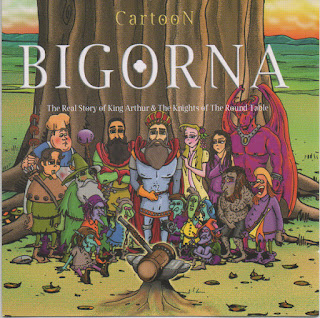 |
| Cartoon "Martelo"1999 "Bigorna"2002 + "Estribo" 2008 + "Unbeatable" 2013 + "V" 2017 Brazil Prog Folk Rock |
 |
| Cartoon "Martelo"1999 "Bigorna"2002 + "Estribo" 2008 + "Unbeatable" 2013 + "V" 2017 Brazil Prog Folk Rock |
 |
| Cartoon "Martelo"1999 "Bigorna"2002 + "Estribo" 2008 + "Unbeatable" 2013 + "V" 2017 Brazil Prog Folk Rock |
 |
| Cartoon "Martelo"1999 "Bigorna"2002 + "Estribo" 2008 + "Unbeatable" 2013 + "V" 2017 Brazil Prog Folk Rock |
 |
| Cartoon "Martelo"1999 "Bigorna"2002 + "Estribo" 2008 + "Unbeatable" 2013 + "V" 2017 Brazil Prog Folk Rock |
 |
| Gerson Werlang"Memorias Do Tempo"2008 + "Sistema Solar"2015 Brazil Prog Rock (Poços & Nuvens...member) |
 |
| Gerson Werlang"Memorias Do Tempo"2008 + "Sistema Solar"2015 Brazil Prog Rock (Poços & Nuvens...member) |
.jpg) |
| Necro "Necronomicon "The Queen Of Death" 2012 + Witching Altar, Necro "Witching Altar / Necro" EP 2015 + "Necro" 2014 + "Adiante" 2016 + "Pra Tomar Chá"EP 2019 Brazil,Heavy Psych.Stoner,Doom Metal |
 |
| Necro "Necronomicon "The Queen Of Death" 2012 + Witching Altar, Necro "Witching Altar / Necro" EP 2015 + "Necro" 2014 + "Adiante" 2016 + "Pra Tomar Chá"EP 2019 Brazil,Heavy Psych.Stoner,Doom Metal |
.jpg) |
| Necro "Necronomicon "The Queen Of Death" 2012 + Witching Altar, Necro "Witching Altar / Necro" EP 2015 + "Necro" 2014 + "Adiante" 2016 + "Pra Tomar Chá"EP 2019 Brazil,Heavy Psych.Stoner,Doom Metal |
.jpg) |
| Necro "Necronomicon "The Queen Of Death" 2012 + Witching Altar, Necro "Witching Altar / Necro" EP 2015 + "Necro" 2014 + "Adiante" 2016 + "Pra Tomar Chá"EP 2019 Brazil,Heavy Psych.Stoner,Doom Metal |
.jpg) |
| Necro "Necronomicon "The Queen Of Death" 2012 + Witching Altar, Necro "Witching Altar / Necro" EP 2015 + "Necro" 2014 + "Adiante" 2016 + "Pra Tomar Chá"EP 2019 Brazil,Heavy Psych.Stoner,Doom Metal |
 |
| Alexandre Maraslis "Spiritual Awakening"2000 + "Maraslis" 2021 Brazil Prog Rock |
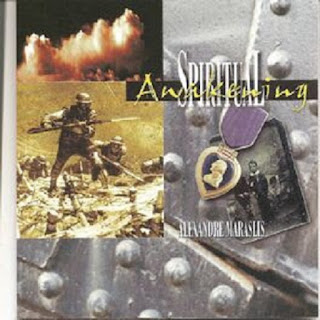 |
| Alexandre Maraslis "Spiritual Awakening"2000 + "Maraslis" 2021 Brazil Prog Rock |
 |
| Pequeno Céu "Pequeno Céu" 2014 +"Sargaço"2014 + "Praia Vermelha" 2017 Brazil Prog Jazz Rock,Post Rock,Math Rock |
 |
| Pequeno Céu "Pequeno Céu" 2014 +"Sargaço"2014 + "Praia Vermelha" 2017 Brazil Prog Jazz Rock,Post Rock,Math Rock |
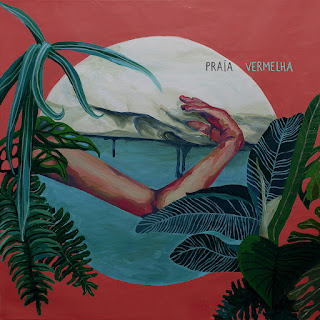 |
| Pequeno Céu "Pequeno Céu" 2014 +"Sargaço"2014 + "Praia Vermelha" 2017 Brazil Prog Jazz Rock,Post Rock,Math Rock |
 |
| Quinteto Armorial "Do Romance ao Galope Nordestino" 1974 + "Aralume" 1976 + "Quinteto Armorial"1978 + "Sete Flechas"1980 Brazil Prog Folk |
 |
| Quinteto Armorial "Do Romance ao Galope Nordestino" 1974 + "Aralume" 1976 + "Quinteto Armorial"1978 + "Sete Flechas"1980 Brazil Prog Folk |
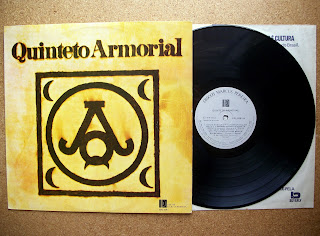 |
| Quinteto Armorial "Do Romance ao Galope Nordestino" 1974 + "Aralume" 1976 + "Quinteto Armorial"1978 + "Sete Flechas"1980 Brazil Prog Folk |
 |
| Quinteto Armorial "Do Romance ao Galope Nordestino" 1974 + "Aralume" 1976 + "Quinteto Armorial"1978 + "Sete Flechas"1980 Brazil Prog Folk |
 |
| Hadron "I" 2023 + Hadron "II" 2023 Brazil Heavy Psych,Heavy Prog,Hard Rock |
 |
| Hadron "I" 2023 + Hadron "II" 2023 Brazil Heavy Psych,Heavy Prog,Hard Rock |
 |
| Locomotiva Elétrica " Manual de Delírios Cotidianos" 2016 + "Os Animais Que Nos Habitam" EP 2024 Brazil Prog,Psych,Stoner,Space Rock |
 |
| Locomotiva Elétrica " Manual de Delírios Cotidianos" 2016 + "Os Animais Que Nos Habitam" EP 2024 Brazil Prog,Psych,Stoner,Space Rock |
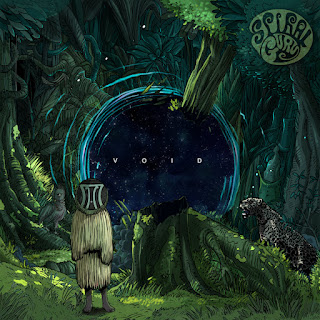 |
| Spiral Guru "Void" 2019 + "Silenced Voices" EP 2024 Piracicaba,Brazil Heavy Psych,Space,Stoner Rock |
 |
| Spiral Guru "Void" 2019 + "Silenced Voices" EP 2024 Piracicaba,Brazil Heavy Psych,Space,Stoner Rock |
 |
| Alfa Serenar "The Mood Machine (and other furnitures)"2019 + "Via" 2020 + "O Sereno da Noite" 2023 Brazil Prog,Electronic,Space Rock |
 |
| Alfa Serenar "The Mood Machine (and other furnitures)"2019 + "Via" 2020 + "O Sereno da Noite" 2023 Brazil Prog,Electronic,Space Rock |
 |
| Alfa Serenar "The Mood Machine (and other furnitures)"2019 + "Via" 2020 + "O Sereno da Noite" 2023 Brazil Prog,Electronic,Space Rock |
 |
| Bike "Em Busca Da Viagem Eterna" 2017 + "Their Shamanic Majesties' Third Request"2018 + "Quarto Templo"2019 + "Live Sessions, Vol.1"2021 + "Arte Bruta" 2023 São Paulo,Brazil Psych,Alternative Rock |
 |
| Bike "Em Busca Da Viagem Eterna" 2017 + "Their Shamanic Majesties' Third Request"2018 + "Quarto Templo"2019 + "Live Sessions, Vol.1"2021 + "Arte Bruta" 2023 São Paulo,Brazil Psych,Alternative Rock |
 |
| Bike "Em Busca Da Viagem Eterna" 2017 + "Their Shamanic Majesties' Third Request"2018 + "Quarto Templo"2019 + "Live Sessions, Vol.1"2021 + "Arte Bruta" 2023 São Paulo,Brazil Psych,Alternative Rock |
 |
| Bike "Em Busca Da Viagem Eterna" 2017 + "Their Shamanic Majesties' Third Request"2018 + "Quarto Templo"2019 + "Live Sessions, Vol.1"2021 + "Arte Bruta" 2023 São Paulo,Brazil Psych,Alternative Rock |
 |
| Bike "Em Busca Da Viagem Eterna" 2017 + "Their Shamanic Majesties' Third Request"2018 + "Quarto Templo"2019 + "Live Sessions, Vol.1"2021 + "Arte Bruta" 2023 São Paulo,Brazil Psych,Alternative Rock |
 |
| White Canyon & The 5th Dimension "White Canyon & The 5th Dimension" 2019 + "Soundtrack For Astral Travel" 2022 + "Live in El Quisco" 2023 + "Gardeners Of the Earth" 2023 Brazil Psych Rock,Post Punk |
 |
| White Canyon & The 5th Dimension "White Canyon & The 5th Dimension" 2019 + "Soundtrack For Astral Travel" 2022 + "Live in El Quisco" 2023 + "Gardeners Of the Earth" 2023 Brazil Psych Rock,Post Punk |
 |
| White Canyon & The 5th Dimension "White Canyon & The 5th Dimension" 2019 + "Soundtrack For Astral Travel" 2022 + "Live in El Quisco" 2023 + "Gardeners Of the Earth" 2023 Brazil Psych Rock,Post Punk |
 |
| White Canyon & The 5th Dimension "White Canyon & The 5th Dimension" 2019 + "Soundtrack For Astral Travel" 2022 + "Live in El Quisco" 2023 + "Gardeners Of the Earth" 2023 Brazil Psych Rock,Post Punk |
 |
| Moondaughter "Phosphenes and Iridescent Lights" 2022 São Paulo,Brazil Dream Pop,Post Rock,Psych Folk |
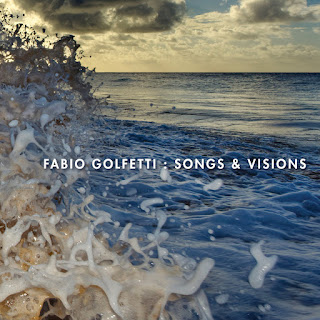 |
| Fabio Golfetti "Songs & Visions" 2022 Brazil Art Rock, Psych Rock,Prog Rock (Gong & Violeta de Outono ...member) |
 |
| Trem Do Futuro "O Tempo" 2008 + "Trem do Futuro" 1995 Brazil Prog Symphonic |
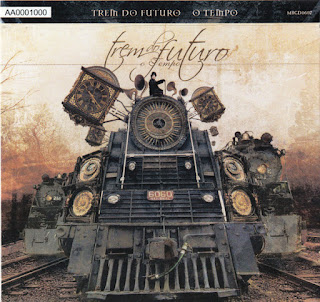 |
| Trem Do Futuro "O Tempo" 2008 + "Trem do Futuro" 1995 Brazil Prog Symphonic |
 |
| Fleesh "Here It Comes Again (A Tribute to Genesis)" 2020 + "Versions II" 2021 + "Eclipsed" 2021 Brazil Prog,Symphonic |
 |
| Fleesh "Here It Comes Again (A Tribute to Genesis)" 2020 + "Versions II" 2021 + "Eclipsed" 2021 Brazil Prog,Symphonic |
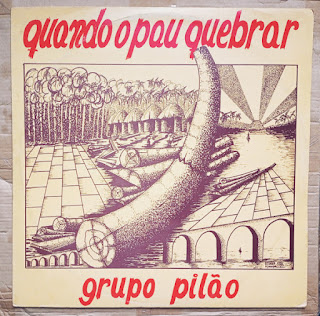 |
| Grupo Pilão "Quando o Pau Quebrar"1986 Brazil Latin Folk,Carimbó,MPB |
 |
| Azimüth "Azimüth"1975 + "Aguia Nao Come Mosca" 1977 + "Light As A Feather" 1979 Brazil Jazz Funk,Jazz Rock Fusion |
 |
| Azimüth "Azimüth"1975 + "Aguia Nao Come Mosca" 1977 + "Light As A Feather" 1979 Brazil Jazz Funk,Jazz Rock Fusion |
 |
| Azimüth "Azimüth"1975 + "Aguia Nao Come Mosca" 1977 + "Light As A Feather" 1979 Brazil Jazz Funk,Jazz Rock Fusion |
.jpg) |
| Joelho De Porco "Saqueando A Cidade" 1983 double LP + "18 Anos Sem Sucesso" 1988 Brazil Psych Punk Hard Jazz Pop Soul Funk Samba Comedy Rock |
 |
| Joelho De Porco "Saqueando A Cidade" 1983 double LP + "18 Anos Sem Sucesso" 1988 Brazil Psych Punk Hard Jazz Pop Soul Funk Samba Comedy Rock |
 |
| Lulu Santos "Assim Caminha a Humanidade" 1982 Brazil Psych Latin Groove Soul Funk,Electropop,New Wave |
.jpg) |
| Alpha III "Spectro" 1974 + "Sombras" 1986 + "Agartha" 1986 Brazil Prog Symphonic |
.jpg) |
| Alpha III "Spectro" 1974 + "Sombras" 1986 + "Agartha" 1986 Brazil Prog Symphonic |
 |
| Alpha III "Spectro" 1974 + "Sombras" 1986 + "Agartha" 1986 Brazil Prog Symphonic |
 |
| Alpha III "Spectro" 1974 + "Sombras" 1986 + "Agartha" 1986 Brazil Prog Symphonic |
.jpg) |
| Tisaris "What's Beyond ?"1992 + "Once Humanity..."1994 + "The Power Of Myth" 1996 Brazil Prog,Symphonic |
.jpg) |
| Tisaris "What's Beyond ?"1992 + "Once Humanity..."1994 + "The Power Of Myth" 1996 Brazil Prog,Symphonic |
 |
| Tisaris "What's Beyond ?"1992 + "Once Humanity..."1994 + "The Power Of Myth" 1996 Brazil Prog,Symphonic |
 |
| Atmosphera "Fogo E Ar" 1998 Brazil Prog Rock |
 |
| Grupo Um "Marcha Sobre A Cidade" 1979 Brazil Jazz Fusion,Avant Garde Jazz |
 |
| Tiago Araripe "Cabelos de Sansão" 1982 Brazil Psych Latin Folk Rock |
 |
| Jorge Mautner "Para Iluminar A Cidade"1972 Brazil Psych Folk,Latin Hippie Folk,Pop Rock |
 |
| Comunidade S8 "Apelo à Terra" 1983 Brazil Gospel Prog Symphonic |
 |
| Guilherme Lamounier "Guilherme Lamounier" 1973 Brazil Psych Acid, Folk Rock |
 |
| Mar Revolto "Mar Revolto" 1979 Brazil Psych Folk Rock,Latin Jazz Funk Fusion |
 |
| Arnaldo Baptista & Patrulha do Espaço"Faremos uma Noitada Excelente" 1988 Brazil Prog Hard Rock (Os Mutantes) |
 |
| Pholhas "Dead Faces"1972 Brazil Prog Pop Rock,Beat |
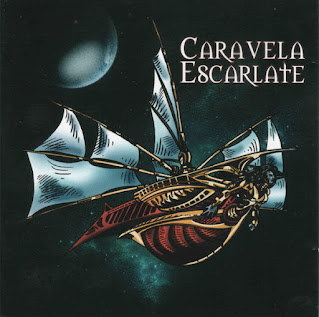 |
| Caravela Escarlate "Caravela Escarlate" 2017 Brazil Prog Symphonic |
.jpg) |
| Dialeto "The Last Tribe" 2013 Brazil Prog Hard Rock |
 |
| Poços & Nuvens "Ano Veloz Outono Adentro" 1998 + "Provincia Universo"2001 Brazil Prog Rock,Symphonic |
 |
| Poços & Nuvens "Ano Veloz Outono Adentro" 1998 + "Provincia Universo"2001 Brazil Prog Rock,Symphonic |
 |
| Maestro Sujo E O Sanatorio Gotham "Experimentos Do Fim Do Mundo" 2017 + "Estereocaos" 2015 + "Toda Psicodelia Agora” 2013 + "Maestro Sujo E O Sanatório Gotham"2011 Viamão,Brazil Psych Rock |
 |
| Maestro Sujo E O Sanatorio Gotham "Experimentos Do Fim Do Mundo" 2017 + "Estereocaos" 2015 + "Toda Psicodelia Agora” 2013 + "Maestro Sujo E O Sanatório Gotham"2011 Viamão,Brazil Psych Rock |
 |
| Maestro Sujo E O Sanatorio Gotham "Experimentos Do Fim Do Mundo" 2017 + "Estereocaos" 2015 + "Toda Psicodelia Agora” 2013 + "Maestro Sujo E O Sanatório Gotham"2011 Viamão,Brazil Psych Rock |
 |
| Maestro Sujo E O Sanatorio Gotham "Experimentos Do Fim Do Mundo" 2017 + "Estereocaos" 2015 + "Toda Psicodelia Agora” 2013 + "Maestro Sujo E O Sanatório Gotham"2011 Viamão,Brazil Psych Rock |
 |
| V.A."The Brasileiro Treasure Box of Funk"2015 CD & 7 x Vinyl, 7" 45 RPM, Compilation Brazil Latin Soul Funk |
 |
| Arrigo Barnabé E A Banda Sabor De Veneno "Clara Crocodilo"1980 Brazil Avantgarde,Avant Psych,Prog,Experimental |
 |
| V.A.“Brazilian Guitar Fuzz Bananas: Tropicalista Psychedelic Masterpieces 1967 - 1976″ Brazil Psych Rock |
 |
| Marcos Resende & Index "Marcos Resende & Index" 2021 Brazil Latin Jazz Funk,Fusion (recorded in Rio de Janeiro,Brazil, between 5th – 28th September 1976 unreleased debut album) |
 |
| Stratus Luna "Stratus Luna" 2019 Brazil Instrumental, Progressive Jazz-Rock,Fusion |
 |
 |
| Negro Leo “Desejo de Lacrar” 2020 Brazil Art Rock Experimental Psych Rock |
 |
| Zé Ramalho "A Peleja Do Diabo Com O Dono Do Céu" 1979 excellent Brazil Latin Funk ,Acid Psych Folk Rock |
 |
| Liverpool "Por Favor, Sucesso"1969 + "Marcelo Zona Sul" 1970 EP + "Hei Menina / Fale" 1971 single Brazil Psych Rock |
 |
| Liverpool "Por Favor, Sucesso"1969 + "Marcelo Zona Sul" 1970 EP + "Hei Menina / Fale" 1971 single Brazil Psych Rock |
 |
| Bombay Groovy "Dandy Do Dendê" 2016 + "Bombay Groovy" 2014 Brazil Psych Rock,Raga Rock |
 |
| Bombay Groovy "Dandy Do Dendê" 2016 + "Bombay Groovy" 2014 Brazil Psych Rock,Raga Rock |
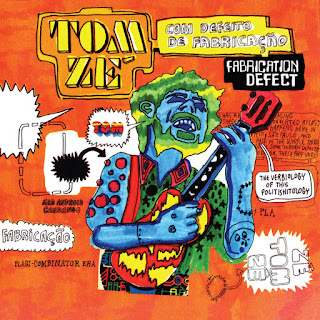 |
| Tom Zé "Com Defeito De Fabricação (Fabrication Defect)" 1998 Brazil Psych Avant Folk,Avantgarde,Tropicalia,MPB |
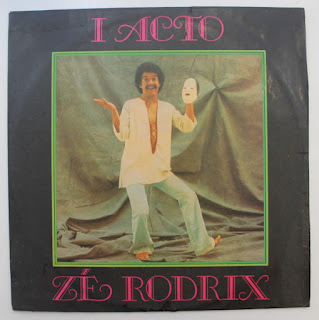 |
| Zé Rodrix "I Acto" 1973 Brazil Psych Pop Rock,Baroque Pop,MPB (Sá, Rodrix & Guarabyra, Som Imaginario member) |
 |
| Violeta De Outono "Violeta De Outono" 1987 Brazil Psych Rock,Space Rock,Indie Rock,Alternative Rock,Post Punk |
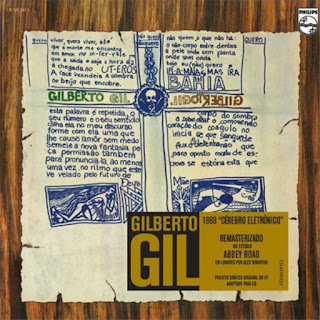 |
| Gilberto Gil “Gilberto Gil (aka Cérebro Eletrônico) ” 1969 Brazil Psych Rock,Samba Rock, Experimental,Tropicalia,MPB |
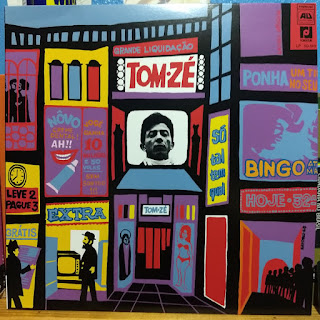 |
| Tom Zé "Grande Liquidação" 1968 Brazil Psych Latin Pop Rock,Bossanova,Exotica,Tropicalia, MPB..classic, debut album |
 |
| Nação Zumbi (Zombie Nation) "Propagando" 2004 double CD& DVD Brazil Alternative Rock,Dub,Manguebeat, MPB |
 |
| V.A."Tropicalia A Brazilian Revolution in Sound " double LP Compilation 2005, Brazil Psych Rock,Tropicalia,Bossanova,Samba MPB |
 |
| Nação Zumbi “Radiola NZ, Vol. 1″ 2017 Brazil Alternative Rock,Dub,Manguebeat, MPB ( feat. Ney Matogrosso) |
 |
| Chico Buarque & Caetano Veloso "Caetano E Chico Juntos E Ao Vivo" 1972 Brazil Tropicalia,Samba,Bossa Nova,MPB |
 |
| Liniker E Os Caramelows “Remonta"2016 Brazil Soul Funk,R & B,Psych Soul,Neo Soul,Vocal Jazz, MPB |
 |
| Liniker e os Caramelows "Goela Abaixo" 2019 Brazil Soul Funk,R & B, MPB |
 |
| Ricardo Richaid "Travesseiro Feliz"2020 Brazil Psych Jazz Rock,Folk Rock,Indie Jazz Rock,Latin Rock,MPB |
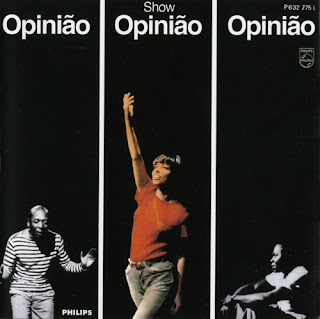 |
| Nara Leão, João do Vale e Zé Kéti “Show Opinião” 1965 Brazil Latin Samba,Spoken World,Protest Folk,MPB (100 Best Brazlian Albums,Rolling Stone) |
 |
| Maracatu "Veronique"1982 Brazil Jazz Rock,Fusion rare Germany Private Press |
 |
Os Famks "Os Famks" 1975 Brazil Beat Pop Rock |
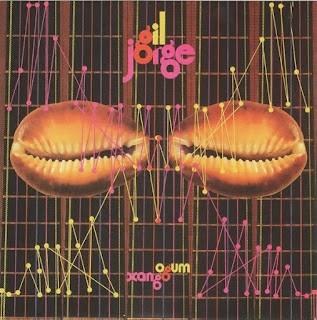 |
| Gilberto Gil e Jorge Ben“Gil & Jorge: Ogum, Xangô” 1975 Brazil Samba,Bossa Nova,Latin Soul,Tropicalia (100 Best Brazlian Albums,Rolling Stone) double LP |
 |
| João Gilberto“Amoroso”1977 Brazil,Latin Jazz,a bossa nova classic,MPB (100 Best Brazlian Albums,Rolling Stone) |
 |
| Os Paralamas do Sucesso“Selvagem?”1986 Brazil New Wave,Ska, Reggae,Dub,Pop Rock (100 Best Brazlian Albums,Rolling Stone) |
 |
| Terreno Baldio "Terreno Baldio" 1976 + "Além Das Lendas Brasileiras" 1977 Brazil Prog Rock |
 |
| Terreno Baldio "Terreno Baldio" 1976 + "Além Das Lendas Brasileiras" 1977 Brazil Prog Rock |
 |
| Chico Science & Nação Zumbi “Afrociberdelia” 1996 Brazil Funk Rock,Hip Hop,Afrobeat (100 Best Brazlian Albums,Rolling Stone) |
 |
| Chico Science & Nação Zumbi “Da Lama Ao Caos” 1994 Brazil Rock,Funk,Hip Hop,Maracatu,(100 Best Brazlian Albums,Rolling Stone) |
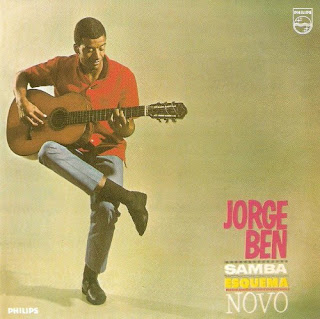 |
| Jorge Ben “Samba Esquema Novo” 1963 Brazil,Samba, Bossa Nova, MPB (100 Best Brazlian Albums,Rolling Stone) |
 |
| Racionais MC’s “Sobrevivendo No Inferno” 1997 double LP Brazil Hip Hop,Underground Rap (100 Best Brazlian Albums,Rolling Stone) |
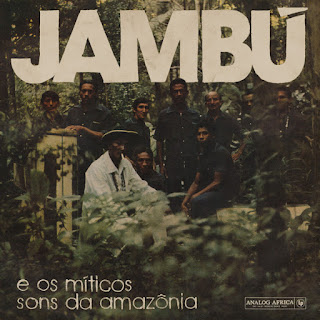 |
| V.A."Jambú e Os Míticos Sons Da Amazônia 1974-1986" 2019 - 2 x LP`s Compilation Brazil,Latin Jazz,Africa,Cumbia,Afrobeat,Afrofunk |
 |
| Super Erotico"Finalmente Liberado" 1974 rare Brazil Psych Soul Funk breaks (feat Brazilian producer and composer Durval Ferreira & Azimuth band) |
 |
| Gilberto Gil "Expresso 2222" 1972 Brazil Tropicalia,Samba Rock MPB (100 Best Brazilian Albums,Rolling Stone) |
 |
| Banda Black Rio "Maria Fumaça" 1977 Brazil Jazz Funk,Soul Samba Funk Fusion, MPB (100 Best Brazilian Albums,Rolling Stone) |
 |
| Caetano Veloso, Gal Costa, Gilberto Gil e Maria Bethânia “Doces Bárbaros”1976 double LP Brazil Samba Rock,MPB,Tropicalia (100 Best Brazilian Albums,Rolling Stone) |
 |
| Luiz Melodia "Pérola Negra"1973 Brazil Latin Funk,Samba Blues Rock Soul,MPB (100 Best Brazilian Albums,Rolling Stone) |
 |
| Gal Costa "Gal Costa" 1969 Brazil Psych Rock, MPB, Samba Rock,Psych Pop,Tropicalia (100 Best Brazlian Albums,Rolling Stone) (feat Gilberto Gil & Caetano Veloso) |
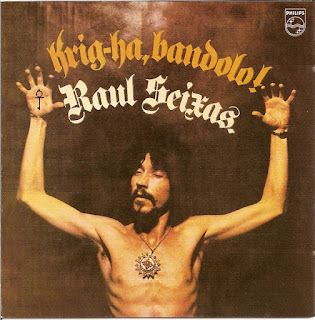 |
| Raul Seixas “Krig-ha, Bandolo!” 1973 Brazil,Samba Rock,Psych Folk Rock,Tropicalia MPB (100 Best Brazilian Albums,Rolling Stone) |
 |
| Azymuth "Demos 1973-75" Vol 1 & 2, 2019 double LP & CD Brazil Jazz Funk,Jaz Rock Fusion |
 |
| Azymuth "Demos 1973-75" Vol 1 & 2, 2019 double LP & CD Brazil Jazz Funk,Jaz Rock Fusion |
 |
| Messias Elétrico "Messias Elétrico" 2011 first album + "Messias Elétrico" 2015 second album Brazil Prog Psych |
 |
| Messias Elétrico "Messias Elétrico" 2011 first album + "Messias Elétrico" 2015 second album Brazil Prog Psych |
 |
| Arnaldo Baptista (Os Mutantes) "Lóki?" 1974 Brazil Psych Folk Pop,Prog Pop (100 Best Brazilian Albums,Rolling Stone) first solo album |
 |
| Erasmo Carlos “Carlos Erasmo” 1971 Brazil Psych Folk Rock,Samba Rock,MPB masterpiece (100 Best Brazilian Albums,Rolling Stone) |
 |
| Paulinho da Viola “A Dança da Solidão” 1972 Brazil Latin,Samba,MPB (100 Best Brazilian Albums,Rolling Stone) |
 |
| Caetano Veloso “Cinema Transcendental”1979 Brazil Tropicalia, Psych Latin,Folk,Pop,Samba,MPB (100 Best Brazilian Albums,Rolling Stone) |
 |
| Gal Costa “Fa-Tal-Gal A Todo Vapor”1971 double LP Live Brazil Psych Folk Rock, Tropicalia(100 Best Brazilian Albums,Rolling Stone) |
 |
| Paulinho Da Viola "Nervos De Aço"1973 Brazil SambaJazz,Bossa Nova,MPB (100 Best Brazilian Albums,Rolling Stone) |
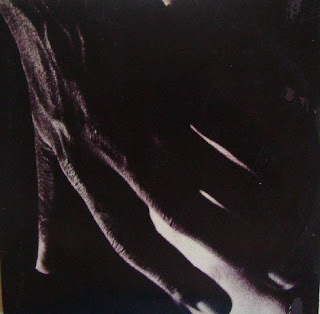 |
| Milton Nascimento "Milagre Dos Peixes"1973 Brazil Experimental,Avant Garde,Avant Folk,Jazz,MPB double album (feat Naná Vasconcelos) (100 Best Brazilian Albums,Rolling Stone) |
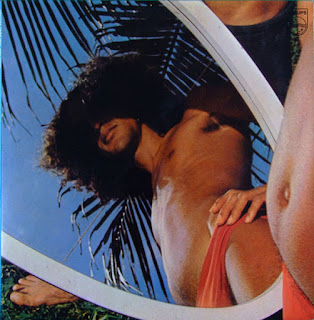 |
| Caetano Veloso "Araçá Azul" 1973 Brazil Experimental,Latin,Jazz,Samba,Avant Garde,MPB (100 Best Brazilian Albums,Rolling Stone) |
 |
| Jorge Ben "A Tábua De Esmeralda" 1974 Brazil,Latin,Jazz,Samba,MPB (100 Best Brazilian Albums,Rolling Stone) |
 |
| João Gilberto "Chega De Saudade"1959 Brazil Bossa Nova,MPB (100 Best Brazilian Albums,Rolling Stone) |
 |
| Chico Buarque "Construção" 1971 Brazil,Samba,Bossa Nova,Jazz,MPB (100 Best Brazilian Albums,Rolling Stone) |
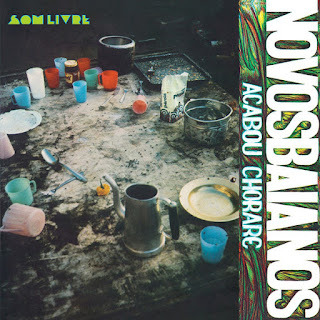 |
| Novos Baianos "Acabou Chorare"1972 Brazil Samba Rock,Psych Folk Rock,MPB (100 Best Brazilian Albums,Rolling Stone) one of the biggest MPB albums...! |
 |
| Rita Lee & Tutti Frutti "Fruto Proibido” 1975 Brazil Psych,Blues, Pop Rock,Glam Rock (100 Best Brazilian Albums,Rolling Stone) |
 |
| Tom Zé "Estudando O Samba" 1976 Brazil Avant Garde,Samba,Experimental,MPB (100 best Brazilian albums,Rolling Stone) |
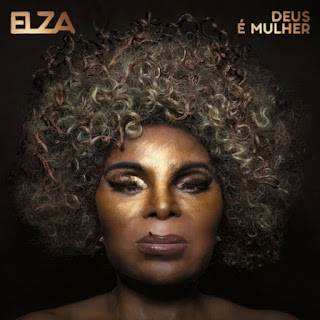 |
| Elza Soares "Deus É Mulher" 2018 Brazil Poltical,Math Rock,Art Rock,Art Pop,Samba,Experimental,Art Punk,MPB |
 |
| V.A.“Psychedelic Pernambuco” (Mr Bongo presents) 2 x LP`s & CD Psych Folk Rock Compilation from Brazil |
 |
| Caetano Veloso "Transa" 1972 Latin Pop,Samba,MPB one of the best Braziilian albums (100 Best Brazilian Albums,Rolling Stone) |
 |
| Chico Buarque “Chico Buarque de Hollanda 3” 1968 Brazil Latin,Bossa Nova,Samba-Canção. ..one of the best Brazilian albums..recommended…! |
 |
| Jorge Ben"Africa Brasil"1976 Brazil Latin Funk,Samba Rock one of best Brazil album ever recorded (100 Best Brazilian Albums,Rolling Stone) |
 |
| Alceu Valença & Geraldo Azevedo “Alceu Valença & Geraldo Azevedo"1972 Brazil Psych Folk Pop,Rock MPB |
 |
| Dom Salvador E Abolição "Som, Sangue E Raça"1971 Brazil Latin Funk,Latin Jazz,Samba Jazz,Samba Soul,MPB |
 |
| Burnier & Cartier "Burnier & Cartier" 1974 ultra rare & excellent Brazil Latin Funk,Soul,Samba Jazz,MPB,Bossa Soul |
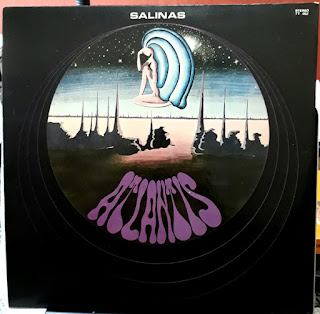 |
| Daniel Salinas "Paz Amor E Samba" 1972 +“Atlantis"1974 Brazil Samba,Jazz Funk,Latin Funk |
 |
| Daniel Salinas "Paz Amor E Samba" 1972 +“Atlantis"1974 Brazil Samba,Jazz Funk,Latin Funk |
 |
| Modulo 1000 “Nao Fale Com Paredes” 1972 Heavy Psych Brazilian Monster + Love Machine "The Cancer Stick / Waitin’ For Tomorrow" 1972 rare single 7" by Modulo 1000 with name “Love Machine” |
 |
| Modulo 1000 “Nao Fale Com Paredes” 1972 Heavy Psych Brazilian Monster + Love Machine "The Cancer Stick / Waitin’ For Tomorrow" 1972 rare single 7" by Modulo 1000 with name “Love Machine” |
 |
| Zé Rodrix E A Agência De Mágicos “Quem Sabe Sabe Quem Não Sabe Não Precisa Saber” 1974 Brazil Psych Rock,Jazz Rock,MPB |
 |
| Leno "Brasil Jovem Guarda - Academia Brasileira de Música - Vol. 2" 1991 Brazil MPB Tropicalia,Latin Pop Rock |
 |
| Tribo Massáhi "Estrelando Embaixador" Brazil 1972 Tropicalia,Afro Psych,Samba one of the rarest Brazilian records of all time |
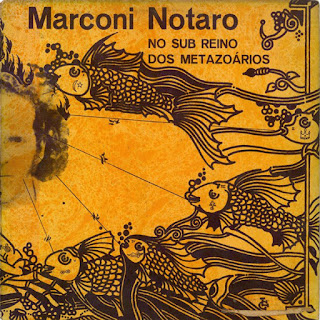 |
| Marconi Notaro "No Sub Reino dos Metazoários Rozenblit"1973 featuring Lula Côrtes & Co- mega rare Brazil Private Psych Acid Folk Experimental,Underground Freak |
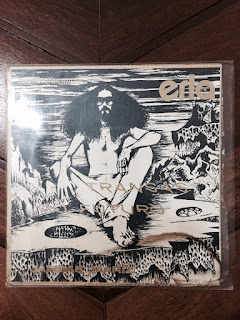 |
| Jarbas Mariz "Transas Do Futuro" EP 1977 Brazil Psych Folk Rock, ERLA label reissued in 2011 by Vale Verde Records |
 |
| Som Imaginário "Som Imaginário" 1970 + "Som Imaginário" 1971 + "Matança Do Porco" 1973 Brazil Psych Rock |
 |
| Lula Cortês e Zé Ramalho "Paêbirú: Caminho da Montanha do Sol" 1975 mega rare Brazil Psych Freak Folk Rock,Experimental....recommended...! |
 |
| Luiz Carlos Vinhas “O Som Psicodélico de L.C.V.” 1968 Brazil Psych,Jazz Rock,Latin Bossanova,Tropicalia,MPB |
 |
| The Gentlemen "The Gentlemen"1972 ultra rare Brazil Psych Garage Beat only 200 copies pressed reissued by Mr.Bongo |
 |
| Quarto Crescente "Quarto Crescente" 1981 Brazil Blues Rock,Hard Rock,Rock n` Roll (Made In Brazil,Patrulha Do Espaço, Tutti Frutti-members) |
 |
| Walter Franco “Revolver” 1975 Brazil Psych Funk,Art Rock,Experimental,MPB (100 Best Brazlian Albums,Rolling Stone) |
 |
| Legião Urbana “Dois” 1986 Brazil Pop Rock,Post Punk,Alternative Rock (100 Best Brazlian Albums,Rolling Stone) |
 |
| Nara Leão, João do Vale e Zé Kéti “Show Opinião” 1965 Brazil Latin Samba,Spoken World,Protest Folk,MPB (100 Best Brazlian Albums,Rolling Stone) |
 |
| Caetano Veloso "Caetano Veloso"1968 Brazil Tropicalia Psych Latin,Folk,Pop (100 Best Brazilian Albums,Rolling Stone) |
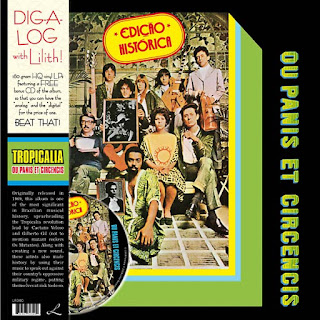 |
| V.A. “Tropicália Ou Panis Et Circensis” 1968 Brazil Latin Bossanova, Psychedelic Rock one of the best Brazilian albums (100 Best Brazlian Albums,Rolling Stone) |
 |
| Apokalypsis “1975” 1975 Brazil Rock Prog Rock |
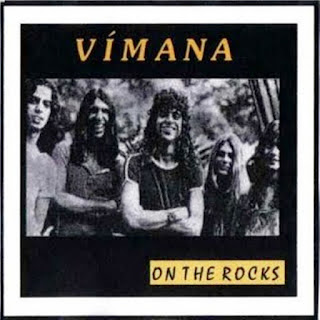 |
| Vimana" On The Rocks"1977 Brazil Prog Rock (Modulo 1000,Os Mutantes,Mainhorse,Yes,Moody Blues,A Barca Do Sol-members) |
 |
| Tim Maia “Nobody Can Live Forever: The Existential Soul of Tim Maia" 70`s Brazil Psych,Gospel,Funk,Soul…recommended…one of the best Brazil albums made..! |
 |
| Ney Matogrosso (Secos e Molhados) ”Água Do Céu Pássaro” 1975 Brazil Prog Pop,Avant Folk debut solo album |
 |
| Os Mutantes “A Divina Comédia Ou Ando Meio Desligado” 1970 third album Brazil Psych Rock (100 Best Brazilian Albums,Rolling Stone) |
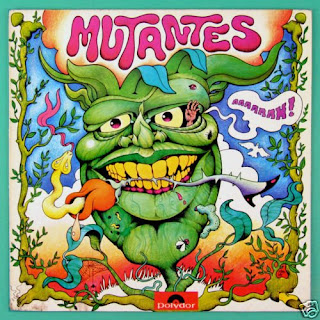 |
| Os Mutantes “Jardim Elétrico” 1971 fourth album Brazil Psych Rock (100 Best Brazlian Albums,Rolling Stone) |
 |
| Casa das Máquinas “Casa Das Máquinas” 1974 + “Lar de Maravilhas“ 1975 + “Casa De Rock”1976 Brazil Prog Hard Rock |
 |
| Gilberto Gil "Expresso 2222" 1972 Brazil Tropicalia,Samba Rock MPB (100 Best Brazlian Albums,Rolling Stone |
 |
| Flaviola E O Bando Do Sol ”Flaviola E O Bando Do Sol” 1976 Brazil Psych Folk |
 |
| Casa das Máquinas “Casa Das Máquinas” 1974 + “Lar de Maravilhas“ 1975 + “Casa De Rock”1976 Brazil Prog Hard Rock |
 |
| Mutantes “E Seus Cometas No País Dos Baurets” 1972 Fifth album.Brazil Psych Rock |
 |
| Os Mutantes “Os Mutantes”1968 debut album Brazil Psych Rock (100 Best Brazilian Albums,Rolling Stone) |
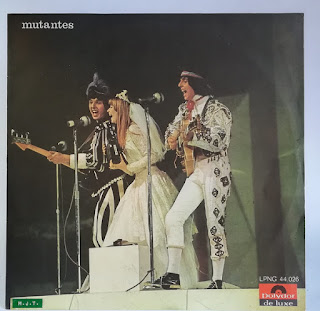 |
| Mutantes “Mutantes”1969 Second album Brazil Psych Rock (100 Best Brazilian Albums,Rolling Stone) |
 |
| Mutantes ”Tudo Foi Feito Pelo Sol “1974 sixth album Brazil Psych Rock |
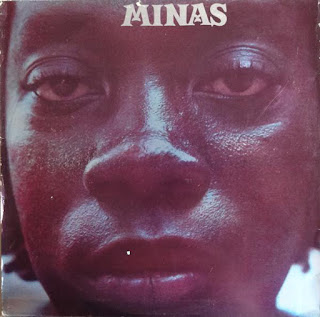 |
| Milton Nascimento "Minas" 1975 Brazil Psych Jazz Latin Funk |
 |
| Spectrum “Geracao Bendita” 1971 mega rare Private Brazil Psychedelic Rock |
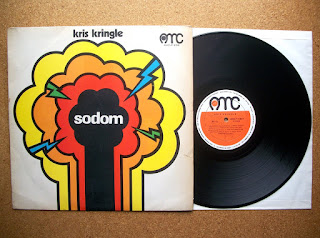 |
| Kris Kringle “Sodom” 1971 Brazil Heavy Psych Prog Funk |
 |
| Free Son “Banguele” 1972 Brazil Psych Funk |
 |
| Trio Mocotó "Muita Zorra” 1971 Brazil latin funk soul Samba Rock |
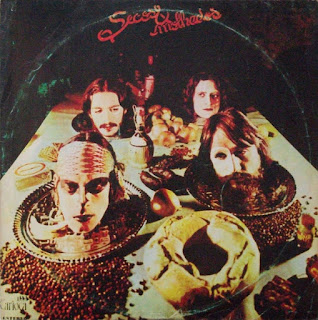 |
| Secos e Molhados “Secos e Molhados” 1973 Brazil Prog Psych debut album (100 Best Brazilian Albums,Rolling Stone) |
 |
| Secos e Molhados “Secos & Molhados II” 1974 Brazil Latin Prog Psych second album |
 |
| Bacamarte “Depois Do Fim” 1983 Brazil Symphonic Prog Rock masterpiece |
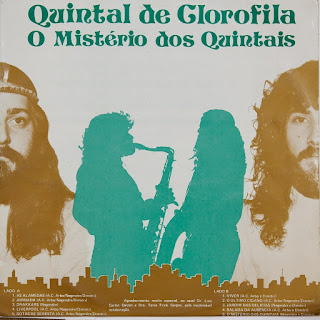 |
| Quintal De Glorofila “O Misterio Dos Quintais” 1983 Brazil Psych Folk |
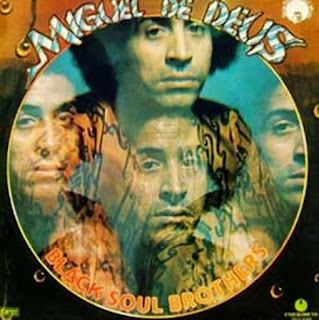 |
| Miguel de Deus “Black Soul Brothers” 1977 Brazil Soul Psych Funk (Os Brazões-member) |
 |
| Milton Nascimento “Milton” 1970 Brazil Folk World Latin |
 |
| VA “Black Rio Vol.2: Brazil Soul Power" 1968-1981 |
 |
| Beat Boys “Beat Boys” 1968 Brazil Psych Pop Rock |
 |
| Piri “Voces Querem Mate" 1970 great ultra rare Brazil Latin Bossa Psych Funk |
 |
| Hugo Filho “Paraibô” 1978 ultra rare Private Brazil Acid Psych Folk gem |
 |
| Som Nosso De Cada Dia “Snegs” 1974 Brazil Prog Symphonic Rock |
 |
| Persona “Som” 1975 mega rare home-made Private Brazil Psych Experimental |
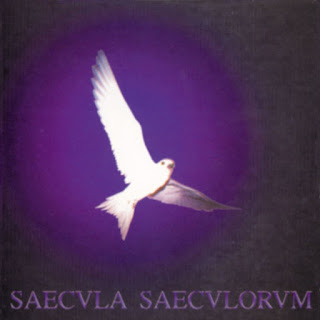 |
| Saecula Saeculorum "Saecula Saeculorum" 1976 Brazil Prog Symphonic |
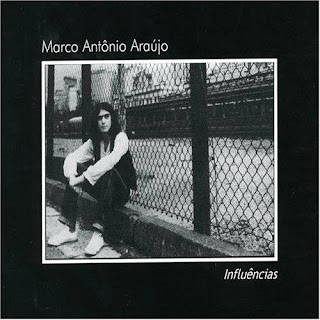 |
| Marco Antonio Araujo “Influencias” 1981 Brazil Prog Folk |
 |
| Rita Lee & Lucia Turnbull "Cilibrinas Do Éden" 1973 Brazil Psych Rock |
 |
| Liverpool "Por Favor, Sucesso"1969 Brazil Psych Rock |
 |
| The Fire Boys "Música Para a Jovem Guarda" 1966 -1967? rare Brazil Surf Rock n` Roll |
 |
| Cátia De França "20 Palavras Ao Redor Do Sol"1979 Brazil Latin, Folk, World, & Country |
 |
| Luis Bonfa “Jacaranda” 1973 Brazil Latin,Soul Samba Bossa Jazz Fusion(feat Eumir Deodato)…a Samba Bossa classic |
 |
| Jorge Ben “Fôrça Bruta” 1970 Brazil Latin Jazz,Samba Soul,Samba Rock (100 Best Brazilian Albums,Rolling Stone) |
 |
| Rogério Duprat “The Brazilian Suite” 1970 Brazil Latin Funk |
 |
| A Barca do Sol “Pirata” 1979 Brazil Prog Folk Rock |
 |
| Lula Côrtes "Rosa De Sangue" 1980 Brazil Private Psych Folk Rock monster |
 |
| Jorge Mautner “Para Iluminar A Cidade” 1972 ultra rare Brazil Bossa, Tropicalia, Folk Rock,Psych |
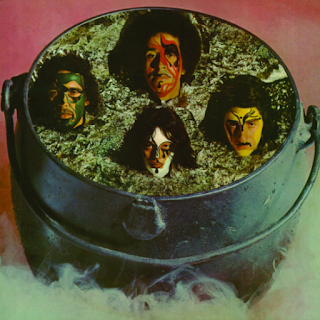 |
| Assim Assado "Assim Assado" 1974 very rare Brazil Soul Psych Latin Funk (Secos & Molhados, Os Brazões) |
 |
| Os Brazões “Os Brazões” Brazil 1969 Brazil Psych Rock,Tropicalia,Samba Rock |
 |
| Teo Azevedo "Grito Selvagem"1974 Brazil Soul Funk, Samba Psych ,Samba Funk,MPB |
 |
| A Chave “De Ponta Cabeça” 1977 Brazil Hard Rock |
 |
| Eduardo Araujo “Eduardo Araujo"1971 excellent Brazil Latin Soul Funk Rock |
 |
| The Fevers "The Fevers" 1973 Brazil Latin,Psych Pop,Beat,Rock |
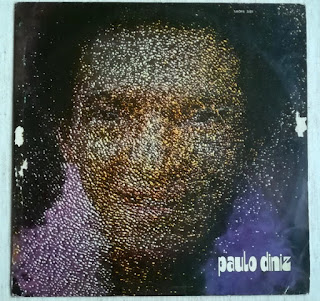 |
| Paulo Diniz "Paulo Diniz “ 1974 Brazil rare Latin Soul Funk groove |
 |
| Alceu Valença "Espelho Cristalino" 1977 Brazil Latin Folk Pop |
 |
| Caetano Veloso "Caetano Veloso"1969 Brazil Latin Bossanova,Psych Rock Tropicalia,Samba,MPB |
 |
| Eduardo Araujo & Silvinha "Sou Filho Dêsse Chão" 1976 rare & excellent Brazil Psych Funk Soul Rock |
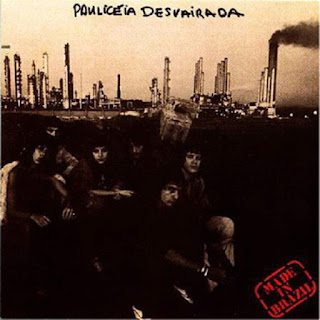 |
| Made In Brazil "Paulicéia Desvairada" 1978 Brazil Pop Rock,Hard Rock |
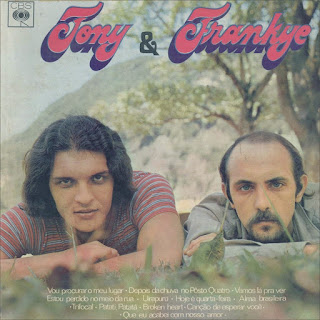 |
| Tony & Frankye "Tony & Frankye" 1971 very rare Brazil Soul Funk, MPB,Latin Funk |
 |
| Belchior “Alucinação” 1976 Brazil Psych Latin Funk Rock,Soul |
 |
| Tim Maia"Racional Vol 1" 1974 + "Racional Vol. 2"1975 (100 Best Brazilian Albums,Rolling Stone) Brazil Latin Psych Soul Funk Rock |
 |
| Tim Maia"Racional Vol 1" 1974 + "Racional Vol. 2"1975 (100 Best Brazilian Albums,Rolling Stone) Brazil Latin Psych Soul Funk Rock |
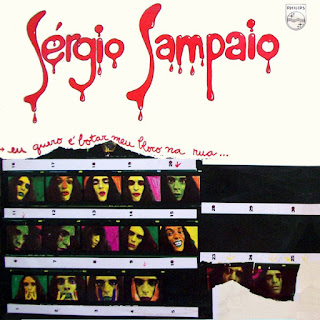 Sergio Sampaio "Eu Quero É Botar Meu Bloco Na Rua…“ 1973 Brazil Samba Psych Pop,Folk Pop |
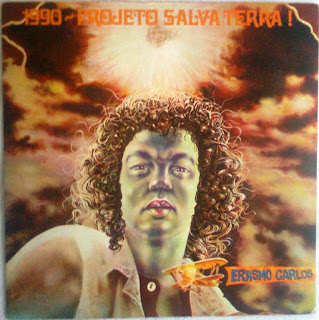 |
| Erasmo Carlos "1990 - Projeto Salva Terra" 1974 excellent... Brazil Psych Groovie,Samba Rock,MPB |
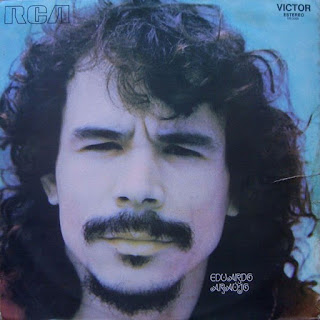 |
| Eduardo Araújo “Eduardo Araújo” 1972 Brazil Psych Rock,Soul Funk |
 |
| Gerson Conrad (ex-Secos & Molhados) “E Zezé Motta" Som Livre"1975 Brazil Psych Rock,MPB,Latin |
 |
| Sexteto Do Beco "Sexteto Do Beco"1980 Brazil Latin Soul Jazz Fusion,MPB |
 |
| Alceu Valença “Vivo!” 1976 Brazil Jazz Rock,Jazz Fusion,Folk Rock,MPB |
 |
| Som Nosso de Cada Dia"Som Nosso"1977 Brazil Latin Prog Funk Rock |
 |
| Joelho De Porco “São Paulo - 1554 / Hoje” 1973 Brazil Prog Punk Rock |
 |
| Sá, Rodrix & Guarabyra “Terra” 1973 Brazil Psych Folk Rock,Country Rock |
 |
| Arnaud Rodrigues "Murituri" 1974 Brazil ultra rare & excellent Soul Funk Psych Soul |
 |
| Novos Bahianos + Baby Consuelo “No Final Do Juízo” 1971 EP Brazil Psych Folk Rock |
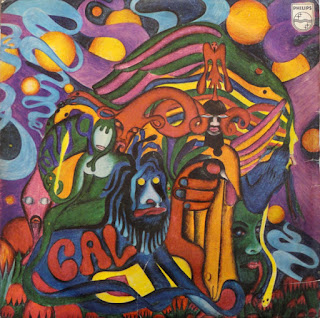 |
| Gal Costa “Gal” 1969 Brazil Psych Funk Rock,Experimental Tropicalia..one of the best Brazilian album |
 |
| Patrulha do Espaço “Patrulha do Espaço” 1981 Brazil Heavy Rock Hard Rock |
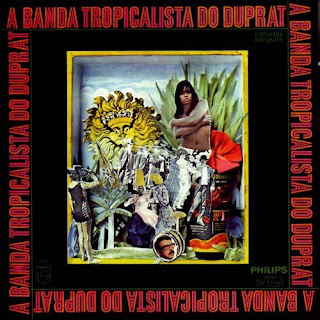 |
| Rogerio Duprat (Os Mutantes) “A Banda Tropicalista do Duprat” 1968 Brazil Folk Rock,Tropicalia,MPB |
 |
| Robertinho de Recife "Robertinho no Passo” (Com Hermeto Pascoal) 1978 Brazil Jazz Rock Prog, MPB |
 |
| Zé Ramalho “Zé Ramalho” 1978 Brazil Psych Folk Rock,MPB |
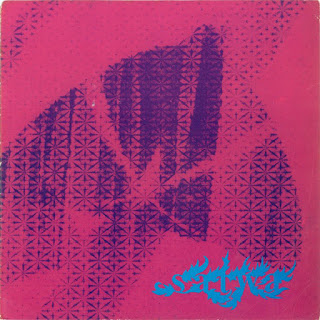 |
| Lula Côrtes & Laílson "Satwa" 1973 very rare & excellent Brazil Private Acid Psych Folk |
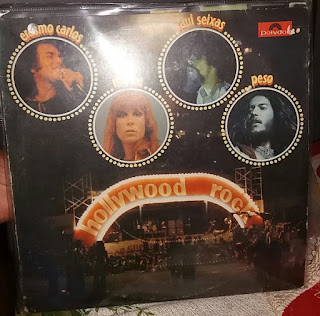 |
| V.A.“Hollywood Rock”1975 (Raul Seixas, Rita Lee, Erasmo Carlos, O Peso) 1975 Brazil Prog Rock,Blues Rock |
 |
| Som Imaginário "Som Imaginário" 1970 + "Som Imaginário" 1971 + "Matança Do Porco" 1973 Brazil Psych Rock |
 |
| Som Imaginário "Som Imaginário" 1970 + "Som Imaginário" 1971 + "Matança Do Porco" 1973 Brazil Psych Rock |
 |
| Moto Perpétuo “Moto Perpétuo” 1974 Brazil Psych Folk Rock,Prog,Symphonic |
 |
| Raimundo Fagner “Ave Noturna” 1975 Brazil,Latin,Folk Rock,Prog Rock, MPB |
 |
| Sound Factory “Sound Factory” 1970 Brazil Hard Psych monster..! |
 |
| O Bando “O Bando” 1969 Brazil Psych Pop Rock |
 |
| Aratanha Azul “Aratanha Azul” 1979 EP Brazil Psych Folk Rock |
 |
| Cry Babies “Cry Babies” 1969 Brazil rare Latin Psych Funk Soul Groove |
 |
| Silvinha “Silvinha” 1971 Brazil Psych Jazz Rock,MPB |
 |
| Lô Borges ”Lô Borges”1972 Brazil Prog,Folk,Jazz Fusion, best Brazilian albums...recommended..! |
 |
| Piti “Hall” 1970 EP 7" Brazil Hippie Folk Tropicalia Soul Psych |
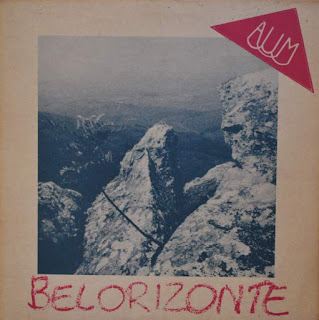 |
| Aum "Belorizonte" 1983 Brazil Prog Jazz Rock Fusion |
 |
| Marcos Valle “Vento Sul” 1972 Brazil Psych Samba,MPB,Bossanova, (with members of the “O Terço) |
 |
| Ronnie Von "A Máquina Voadora" 1970 Brazil Psych Rock |
 |
| Wanderléa “Vamos Que Eu Já Vou” 1977 Brazil Pop Funk Fusion |
 |
| Perfume Azul do Sol “Nascimento"1974 Private Brazil Psych |
 |
| Serguei “Psicodélico 1966-1975″ 2013 Brazil Garage Psych Rock Compilation |
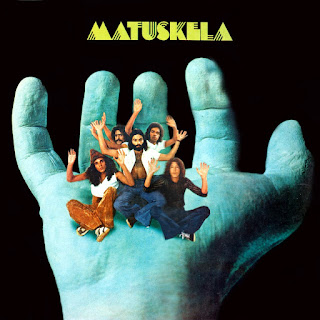 |
| Matuskela “Matuskela” 1973 Brazil Prog Psych |
 |
| Arthur Verocai "Arthur Verocai"1972 Brazil Latin Soul Funk,MPB |
 |
| Ninguém Sabe "Ninguém Sabe" 2015 Prog Hard Blues Rock debut album |
 |
| Fuzi 9 "Fuzi 9"1970 Brazil Funky,Soul,Samba,MPB |
 |
| Carlos Walker "A Frauta de Pã" 1975 very rare Brazil Dreamy Psych Folk |
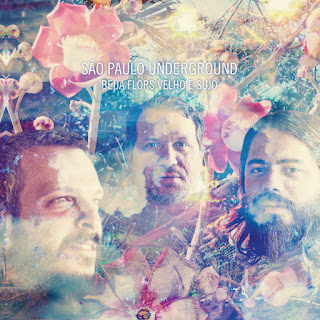 |
| São Paulo Underground "Beija Flors Velho E Sujo" 2013 Brazil Avant Garde Jazz,Experimental,Free Jazz |
 |
| Gal Costa “Cantar” 1974 Brazil Jazz,Latin,Bossa Nova MPB (100 best Brazilian albums Rolling Stone) |
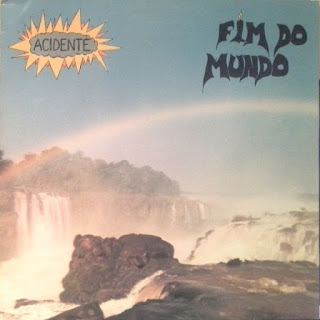 |
| Acidente "Fim Do Mundo" 1983 Brazil Hard Rock |
 |
| Blow Up "Blow Up" 1971 Brazil Hippie Fuzz Psych very rare first pressing in Caravelle label |
 |
| Rita Lee & Tutti Frutti "Atrás Do Porto Tem Uma Cidade" 1974 Brazil Glam Rock,Pop Rock |
 |
| Tom Jobim “Wave” 1967 Brazil Latin Jazz,Bossa Nova,Samba Jazz (100 Best Brazlian Albums,Rolling Stone) |
 |
| Titãs “Cabeça Dinossauro” 1986 Brazil New Wave,Post Punk (100 Best Brazlian Albums,Rolling Stone) |
 |
| Marisa Monte “MM” 1989 Brazil Latin Jazz,Blues,MPB (100 Best Brazlian Albums,Rolling Stone) |
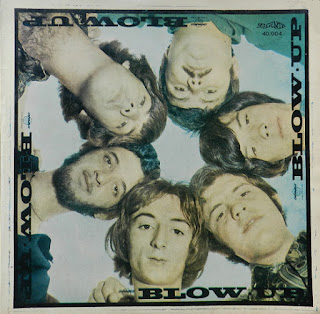 |
| Blow-Up "Blow-Up"1969 Brazil Psych,Beat ,Surf,Pop Rock,debut album |
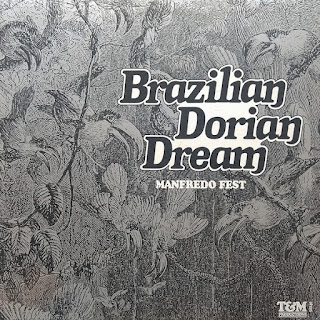 |
| Manfredo Fest "Brazilian Dorian Dream" 1976 Brazil Private Jazz Funk, Fusion masterpiece...high recommended...! |
Artist Photos
 |
| Zé Ramalho on the tour of his first album.Geraldo Azevedo, Elba Ramalho, Valdemar Falcão, Lizzie Bravo, Cátia de França e Bezerra da Silva |
 |
| Alceu, Zé Ramalho, Zé da Flauta e parte do Ave Sangria |
 |
| Patrulha do Espaço Brazil Heavy Rock Hard Rock |
 |
| Patrulha do Espaço Brazil Heavy Rock Hard Rock |
 |
| Patrulha do Espaço Brazil Heavy Rock Hard Rock |
 |
| Patrulha do Espaço Brazil Heavy Rock Hard Rock |
 |
| Patrulha do Espaço Brazil Heavy Rock Hard Rock |
 |
| Patrulha do Espaço Brazil Heavy Rock Hard Rock |
 |
| Patrulha do Espaço Brazil Heavy Rock Hard Rock |
 |
| Patrulha do Espaço Brazil Heavy Rock Hard Rock |
 |
| Patrulha do Espaço Brazil Heavy Rock Hard Rock |
 |
| Patrulha do Espaço Brazil Heavy Rock Hard Rock |
 |
| Patrulha do Espaço Brazil Heavy Rock Hard Rock |
 |
| Patrulha do Espaço Brazil Heavy Rock Hard Rock |
 |
| Patrulha do Espaço Brazil Heavy Rock Hard Rock |
 |
| Patrulha do Espaço Brazil Heavy Rock Hard Rock |
 |
| Patrulha do Espaço Brazil Heavy Rock Hard Rock |
 |
| Patrulha do Espaço Brazil Heavy Rock Hard Rock |
 |
| Patrulha do Espaço Brazil Heavy Rock Hard Rock |
 |
| Patrulha do Espaço Brazil Heavy Rock Hard Rock |
 |
| Patrulha do Espaço Brazil Heavy Rock Hard Rock |
 |
| Novos Bahianos Brazil Psych Folk Rock |
 |
| Novos Bahianos Brazil Psych Folk Rock |
 |
| Novos Bahianos Brazil Psych Folk Rock |
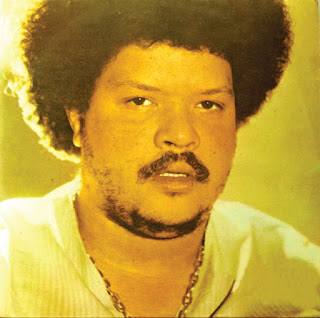 |
| Tim Maia |
 |
| Patrulha do Espaço 1981 Brazil Hard Rock |
 |
| Novos Bahianos Brazil Psych Folk Rock |
 |
| Novos Bahianos Brazil Psych Folk Rock |
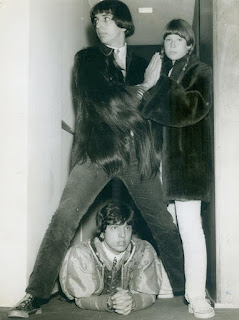 |
| Os Mutantes Brazil Psychedelic Rock |
 |
| Os Mutantes 1973 Brazil Psychedelic Rock |
 |
| Apokalypsis 1975 Brazil Rock Prog Rock |
 |
| Novos Baianos Brazil Samba Rock,Psych Folk Rock,MPB |
 |
| Novos Baianos Brazil Samba Rock,Psych Folk Rock,MPB |
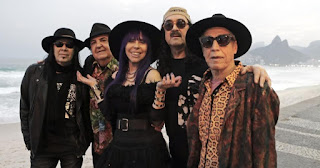 |
| Novos Baianos Brazil Samba Rock,Psych Folk Rock,MPB |
 |
| Novos Baianos Brazil Samba Rock,Psych Folk Rock,MPB |
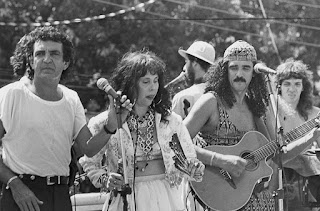 |
| Novos Baianos Brazil Samba Rock,Psych Folk Rock,MPB |
 |
| Novos Baianos Brazil Samba Rock,Psych Folk Rock,MPB |
 |
| Novos Baianos Brazil Samba Rock,Psych Folk Rock,MPB |
 |
| Novos Baianos Brazil Samba Rock,Psych Folk Rock,MPB |
 |
| Novos Baianos Brazil Samba Rock,Psych Folk Rock,MPB |
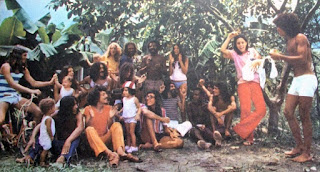 |
| Novos Baianos Brazil Samba Rock,Psych Folk Rock,MPB |
 |
| Novos Baianos Brazil Samba Rock,Psych Folk Rock,MPB |
 |
| Novos Baianos Brazil Samba Rock,Psych Folk Rock,MPB |
 |
| Caetano Veloso |
 |
| Caetano Veloso |
 |
| Jorge Ben, Caetano Velsoso, Gilberto Gil and Os Mutantes |
 |
| Tim Maia |
 |
| Mutantes Brazil Psych Rock |
.jpg) |
| Casa Das Máquinas Brazil Prog Symphonic Hard Rock |
.jpg) |
| Casa Das Máquinas Brazil Prog Symphonic Hard Rock |
 |
| A Barca Do Sol Brazil Prog Folk Rock |
 |
| A Barca Do Sol Brazil Prog Folk Rock |
 |
| Ave Sangria Brazil Psych,Prog |
 |
| Ave Sangria Brazil Psych,Prog |
 |
| Ave Sangria Brazil Psych,Prog |
 |
| Ave Sangria Brazil Psych,Prog |
 |
| Ave Sangria Brazil Psych,Prog |
 |
| Ave Sangria Brazil Psych,Prog |
 |
| Ave Sangria Brazil Psych,Prog |
 |
| A Cor Do Som Brazil Jazz Rock Fusion (A Bolha, Veludo,Os Novos Baianos...members) |
 |
| A Cor Do Som Brazil Jazz Rock Fusion (A Bolha, Veludo,Os Novos Baianos...members) |
 |
| A Cor Do Som Brazil Jazz Rock Fusion (A Bolha, Veludo,Os Novos Baianos...members) |
 |
| A Cor Do Som Brazil Jazz Rock Fusion (A Bolha, Veludo,Os Novos Baianos...members) |
 |
| A Cor Do Som Brazil Jazz Rock Fusion (A Bolha, Veludo,Os Novos Baianos...members) |
 |
| A Cor Do Som Brazil Jazz Rock Fusion (A Bolha, Veludo,Os Novos Baianos...members) |
 |
| Secos & Molhados |
 |
| 0s Mutantes |
 |
| Veludo Brazil Prog Rock |
 |
| Veludo Brazil Prog Rock |
 |
| Veludo Brazil Prog Rock |
 |
| Veludo Brazil Prog Rock |
 |
| Veludo Brazil Prog Rock |
 |
| Veludo Brazil Prog Rock |
 |
| Veludo Brazil Prog Rock |
 |
| Secos & Molhados |
 |
| Sérgio Sampaio |
 |
| Os Mutantes |
 |
| Zé Ramalho Brazil Psych Folk Rock |
 |
| Os Mutantes Sergio Dias, Rita Lee e Arnaldo Baptista em foto antes de um show no Parque da Água Branca |
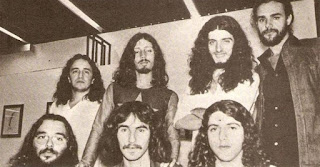 |
| A Barca do Sol 1979 Brazil Prog Folk |
 |
| A Barca do Sol 1979 Brazil Prog Folk |
 |
| Mutantes Brazil Psych Rock |
 |
| Caetano, Maria Bethania, Gal, Gilberto Gil |
 |
| O Peso - No Hollywood Rock de 1975 |
 |
| O Bando Brazil Psych Pop Rock |
 |
| Gil, Macalé e Caetano Veloso |
 |
| Os Mutantes, Gilberto Gil, Caetano Veloso e outros |
 |
| Patrulha do Espaço 1981 Brazil Heavy Rock Hard Rock |
 |
| Sound Factory 1970 Brazi Psych Rock |
 |
| Os Baobás |
 |
| Raul Seixas |
 |
| Caetano Veloso |
 |
| Caetano Veloso |
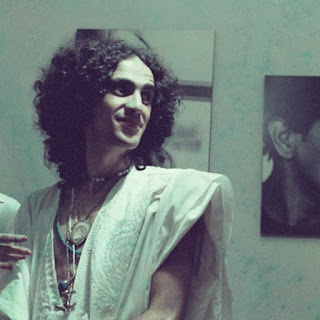 |
| Caetano Veloso |
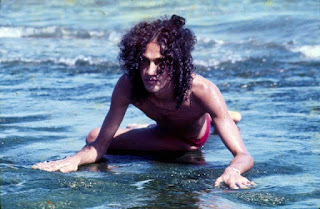 |
| Caetano Veloso |
 |
| Caetano Veloso |
 |
| Caetano Veloso |
 |
| Modulo 1000 Brazil Psych Rock |
 |
| Modulo 1000 Brazil Psych Rock |
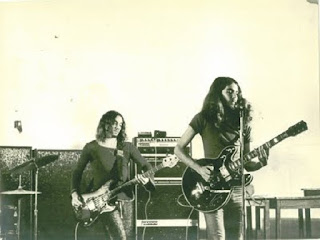 |
| Modulo 1000 Brazil Psych Rock |
 |
| Modulo 1000 Brazil Psych Rock |
 |
| Modulo 1000 Brazil Psych Rock |
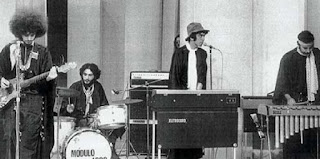 |
| Modulo 1000 Brazil Psych Rock |
 |
| Modulo 1000 Brazil Psych Rock |
 |
| Modulo 1000 Brazil Psych Rock |
 |
| Modulo 1000 Brazil Psych Rock |
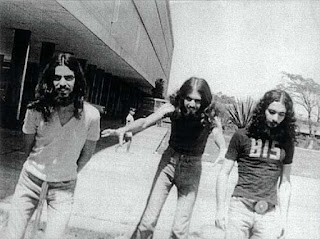 |
| Simas, Daniel e Candinho em Brasília, 1972 Modulo 1000 Brazil Psych Rock |
 |
| Simas e o “mandum” (1972) from Modulo 1000 Brazil Psych Rock |
 |
| Milton Nancimento |
 |
| Secos e Molhados 1974 Brazil Latin Prog Psych |
 |
| Secos e Molhados 1974 Brazil Latin Prog Psych |
 |
| Secos e Molhados 1974 Brazil Latin Prog Psych |
 |
| Secos e Molhados 1974 Brazil Latin Prog Psych |
 |
| Secos e Molhados 1974 Brazil Latin Prog Psych |
 |
| Spectrum 1971 Brazil psychedelic rock |
 |
| Spectrum 1971 Brazil psychedelic rock |
 |
| Spectrum 1971 Brazil psychedelic rock |
 |
| The Fevers 1973 Brazil Latin,Psych Pop,Beat,Rock |
 |
| On the walls of the enchanted stone and memory Alceu Valença, Zé da Fluta, Zé Ramalho, Dicinho and Parte do Ave Sangria (Israel Forbidden Seed, Agricola Noya and Paulo Rafael) 1976 |
 |
| Caetano Veloso and Nara Leon chatting, in the background images of Beatles George Harrison, John Lennon and Ringo Starr. |
 |
| Os Mutantes lead singer Rita Lee wearning colorful clothes, 1960s |
 |
| Secos e Molhados |
 |
| Secos e Molhados |
 |
| Secos e Molhados |
 |
| Secos e Molhados |
 |
| Secos e Molhados |
 |
| Modulo 1000 Brazil Psych Rock |
 |
| Modulo 1000 Brazil Psych Rock |
 |
| Modulo 1000 Brazil Psych Rock |
 |
| Modulo 1000 Brazil Psych Rock |
 |
| Modulo 1000 Brazil Psych Rock |
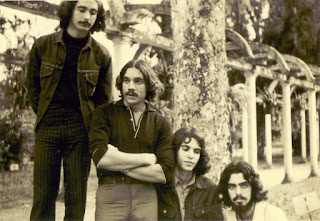 |
| Modulo 1000 Brazil Psych Rock |
 |
| Modulo 1000 Brazil Psych Rock |
 |
| Modulo 1000 Brazil Psych Rock |
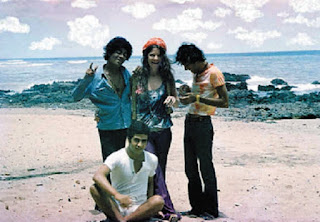 |
| Piti,Janis Joplin na Bahia em 1970 |
 |
| Rita Lee & Tutti Frutti |
 |
| Rita Lee |
 |
| Rita Lee & Tutti Frutti |
 |
| Caetano and Pignatari. Conference on Tropicalia, at FAU-USP, in 1968. |
 |
| Gal Costa |
 |
| Gal Costa |
 |
| Os Mutantes in 1966 |
 |
| III Festival de MPB, 1967. |
 |
| Os Novos Baianos |
 |
| Nação Zumbi (Zombie Nation) Brazil Alternative Rock,Dub,Manguebeat,Hip Hop,Post Punk, MPB |
 |
| Nação Zumbi (Zombie Nation) Brazil Alternative Rock,Dub,Manguebeat,Hip Hop,Post Punk, MPB |
 |
| Nação Zumbi (Zombie Nation) Brazil Alternative Rock,Dub,Manguebeat,Hip Hop,Post Punk, MPB |
 |
| Nação Zumbi (Zombie Nation) Brazil Alternative Rock,Dub,Manguebeat,Hip Hop,Post Punk, MPB |
 |
| Nação Zumbi (Zombie Nation) Brazil Alternative Rock,Dub,Manguebeat,Hip Hop,Post Punk, MPB |
 |
| Nação Zumbi (Zombie Nation) Brazil Alternative Rock,Dub,Manguebeat,Hip Hop,Post Punk, MPB |
 |
| Nação Zumbi (Zombie Nation) Brazil Alternative Rock,Dub,Manguebeat,Hip Hop,Post Punk, MPB |
 |
| Nação Zumbi (Zombie Nation) Brazil Alternative Rock,Dub,Manguebeat,Hip Hop,Post Punk, MPB |
 |
| Nação Zumbi (Zombie Nation) Brazil Alternative Rock,Dub,Manguebeat,Hip Hop,Post Punk, MPB |
 |
| Nação Zumbi (Zombie Nation) Brazil Alternative Rock,Dub,Manguebeat,Hip Hop,Post Punk, MPB |
 |
| Nação Zumbi (Zombie Nation) Brazil Alternative Rock,Dub,Manguebeat,Hip Hop,Post Punk, MPB |
 |
| Nação Zumbi (Zombie Nation) Brazil Alternative Rock,Dub,Manguebeat,Hip Hop,Post Punk, MPB |
 |
| Nação Zumbi (Zombie Nation) Brazil Alternative Rock,Dub,Manguebeat,Hip Hop,Post Punk, MPB |
 |
| Nação Zumbi (Zombie Nation) Brazil Alternative Rock,Dub,Manguebeat,Hip Hop,Post Punk, MPB |
 |
| Nação Zumbi (Zombie Nation) Brazil Alternative Rock,Dub,Manguebeat,Hip Hop,Post Punk, MPB |
 |
| Nação Zumbi (Zombie Nation) Brazil Alternative Rock,Dub,Manguebeat,Hip Hop,Post Punk, MPB |
 |
| Nação Zumbi (Zombie Nation) Brazil Alternative Rock,Dub,Manguebeat,Hip Hop,Post Punk, MPB |
 |
| Nação Zumbi (Zombie Nation) Brazil Alternative Rock,Dub,Manguebeat,Hip Hop,Post Punk, MPB |
 |
| Nação Zumbi (Zombie Nation) Brazil Alternative Rock,Dub,Manguebeat,Hip Hop,Post Punk, MPB |
"Módulo 1000"
Luiz Moreno, Sergio Magrão, Sergio Hinds e Flávio Venturini são a incrível banda O Terço!
 |
| Arnaldo Baptista plays the white Mellotron that Os Mutantes brought from London, on the site of Cantareira. Photo Leila Lisboa Sznelwar |
 |
| Apokalypsis, 1978! |
 |
| 40 Years of the first edition of the historic Festival of Águas Claras. In the photo, show of the band Apokalypsis. |
.jpg) |
| Mar Revolto Brazil Psych Folk Rock,Latin Jazz Funk Fusion |
.jpg) |
| Mar Revolto Brazil Psych Folk Rock,Latin Jazz Funk Fusion |
.jpg) |
| Mar Revolto Brazil Psych Folk Rock,Latin Jazz Funk Fusion |
.jpg) |
| Mar Revolto Brazil Psych Folk Rock,Latin Jazz Funk Fusion |
.jpg) |
| Mar Revolto Brazil Psych Folk Rock,Latin Jazz Funk Fusion |
 |
| Bombay Groovy Brazil Psych Rock,Raga Rock |
 |
| Bombay Groovy Brazil Psych Rock,Raga Rock |
 |
| Bombay Groovy Brazil Psych Rock,Raga Rock |
 |
| Bombay Groovy Brazil Psych Rock,Raga Rock |
 |
| Bombay Groovy Brazil Psych Rock,Raga Rock |
 |
| Bombay Groovy Brazil Psych Rock,Raga Rock |
 |
| Bombay Groovy Brazil Psych Rock,Raga Rock |
 |
| Bombay Groovy Brazil Psych Rock,Raga Rock |
 |
| Bombay Groovy Brazil Psych Rock,Raga Rock |
 |
| Bombay Groovy Brazil Psych Rock,Raga Rock |
 |
| Bombay Groovy Brazil Psych Rock,Raga Rock |
 |
| Bombay Groovy Brazil Psych Rock,Raga Rock |
 |
| Bombay Groovy Brazil Psych Rock,Raga Rock |
 |
| Bombay Groovy Brazil Psych Rock,Raga Rock |
 |
| Bombay Groovy Brazil Psych Rock,Raga Rock |
 |
| Bombay Groovy Brazil Psych Rock,Raga Rock |
 |
| Bombay Groovy Brazil Psych Rock,Raga Rock |
 |
| Bombay Groovy Brazil Psych Rock,Raga Rock |
 |
| Bombay Groovy Brazil Psych Rock,Raga Rock |
 |
| Bombay Groovy Brazil Psych Rock,Raga Rock |
 |
| Bombay Groovy Brazil Psych Rock,Raga Rock |
 |
| Bombay Groovy Brazil Psych Rock,Raga Rock |
 |
| Bombay Groovy Brazil Psych Rock,Raga Rock |
 |
| Bombay Groovy Brazil Psych Rock,Raga Rock |
 |
| Bombay Groovy Brazil Psych Rock,Raga Rock |
 |
| Bombay Groovy Brazil Psych Rock,Raga Rock |
 |
| Bombay Groovy Brazil Psych Rock,Raga Rock |
 |
| Caetano & Gal 1967 |
 |
| Wanderlea, Caetano Veloso, and Gal Costa |
 |
| Caetano Veloso, Chico Buarque, Milton Nascimento |
.jpg) |
| Patrulha do Espaço Brazil Hard Rock |
.jpg) |
| Patrulha do Espaço Brazil Hard Rock |
.jpg) |
| Patrulha do Espaço Brazil Hard Rock |
.jpg) |
| Patrulha do Espaço Brazil Hard Rock |
 |
| Joelho De Porco Brazil Psych,Glam Hard Rock,Comedy Rock |
 |
| Joelho De Porco Brazil Psych,Glam Hard Rock,Comedy Rock |
 |
| Joelho De Porco Brazil Psych,Glam Hard Rock,Comedy Rock |
Brazil Psych,Prog,Tropicalia,Latin,Jazz,Samba Rock,MPB: +100 best Brazilian albums Rolling Stone - Os 100 Maiores Discos Da Música Brasileira: posts blogger with different themes designs.
Brazil Psych,Prog,Tropicalia,Latin,Jazz,Samba Rock,MPB:
magazine design
sidebar design
flipcard design
mosaic design
timeslide design
100 best Brazilian albums Rolling Stone - Os 100 Maiores Discos Da Música Brasileira:
magazine design
sidebar design
flipcard design
mosaic design
timeslide design
Brazil Psych,Prog,Tropicalia,Latin,Jazz,Samba Rock,MPB playlist on mixcloud
click up next & listen only first 20 playlists,if there are,from blogger page,for more playlists,click the link above and go in the mixcloud page
100 best Brazilian albums Rolling Stone full list on tumblr
Brazil Psych,Prog,Tropicalia,Latin,Jazz,Samba Rock,MPB,Covers Albums & Photos
100 best Brazilian albums Rolling Stone - Os 100 Maiores Discos Da Música Brasileira list archive
Brazil Tropicalia MPB playlist spotify by johnkatsmc5














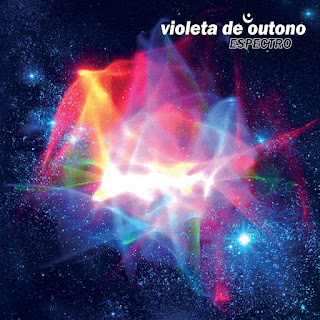
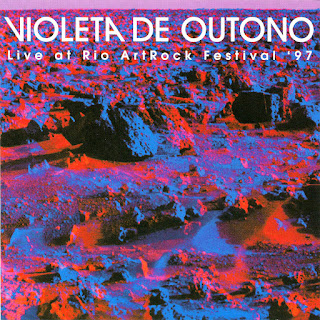




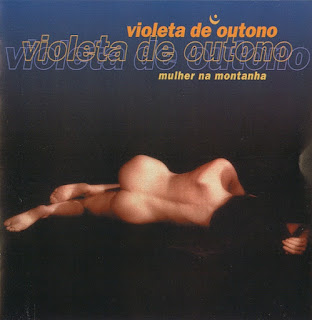
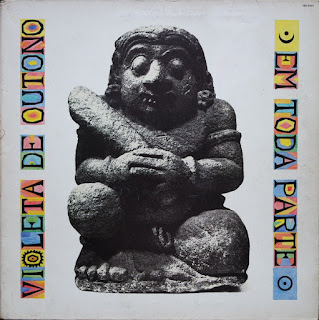


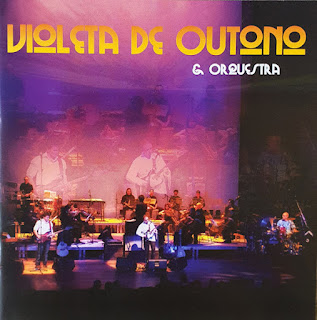




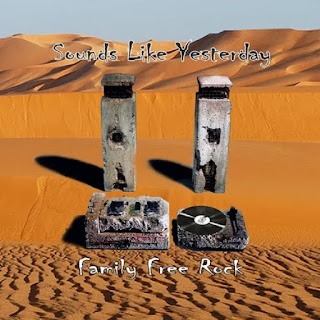
.jpg)








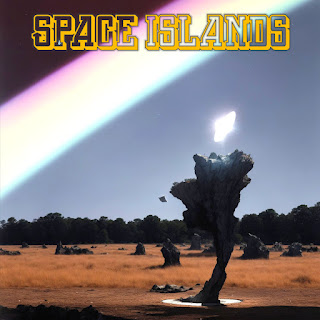




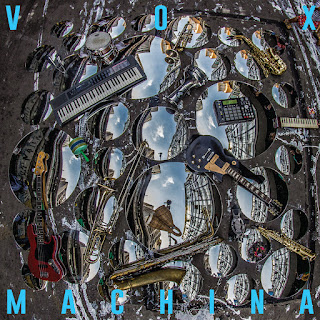




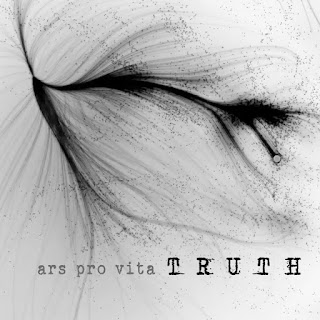



























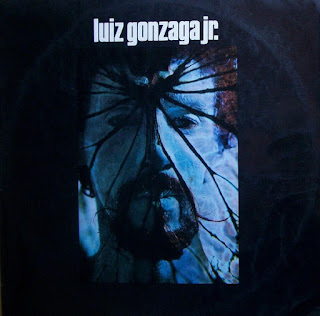


.jpg)

.jpg)

















.jpg)


























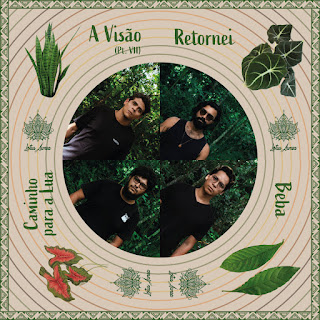







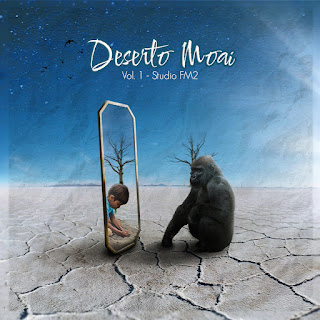


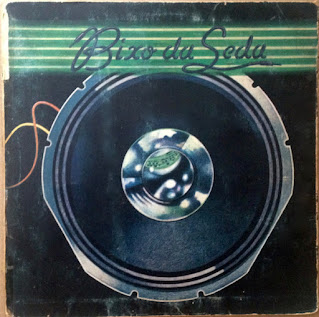



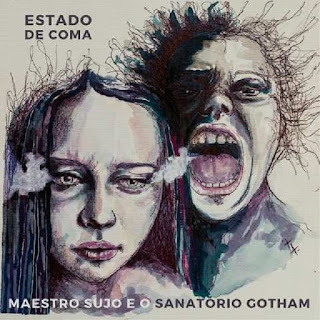





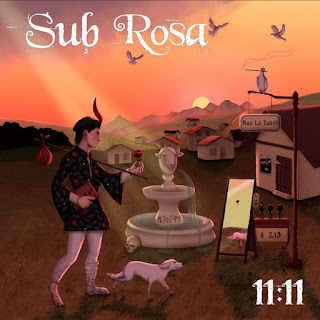



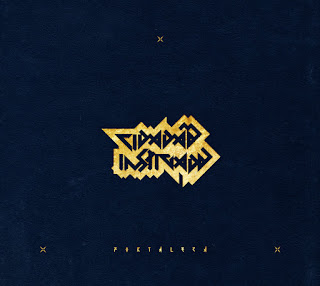



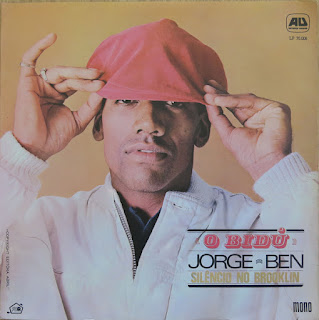




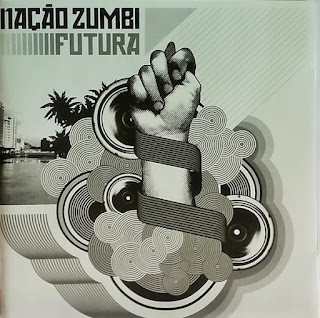


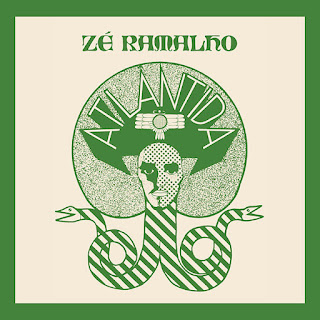



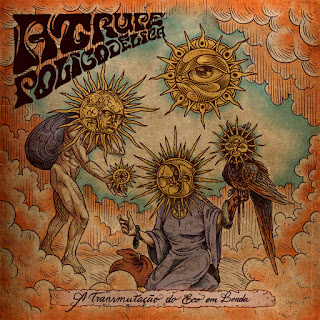




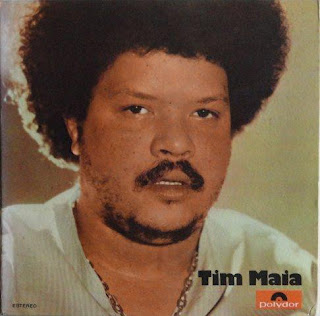



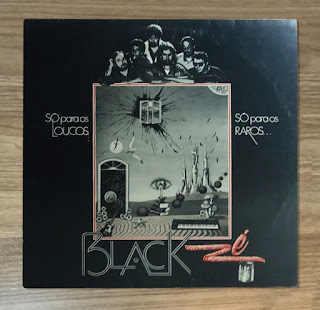

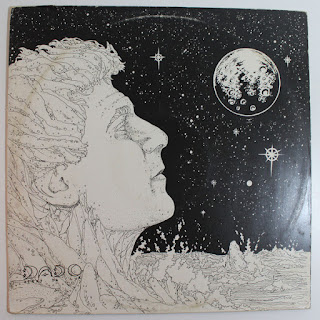




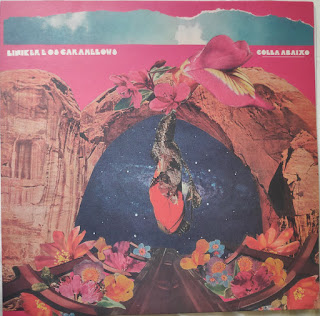

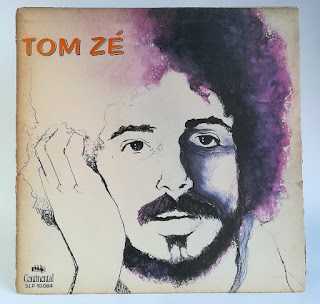

















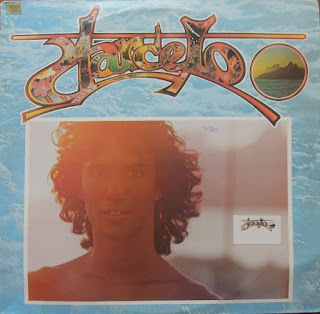
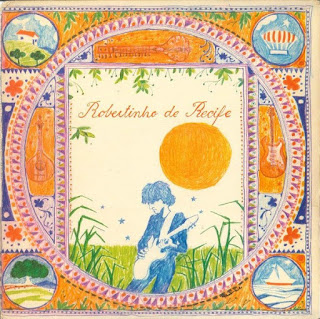


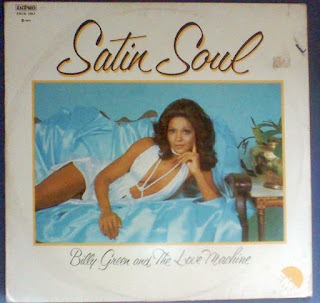







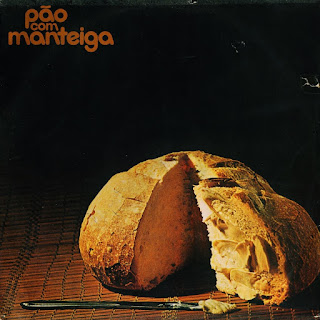


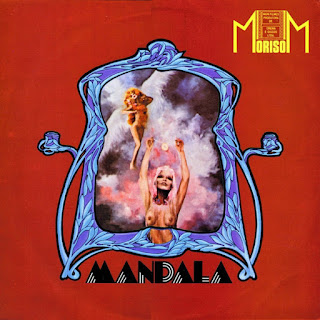









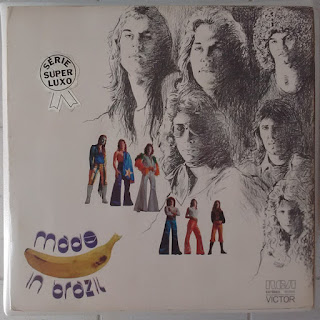

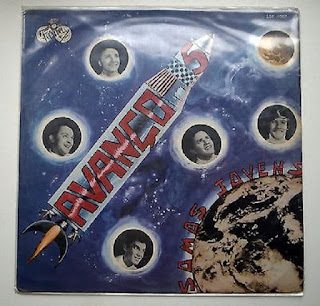

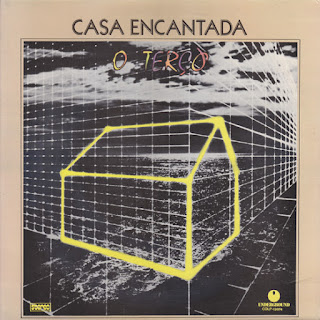






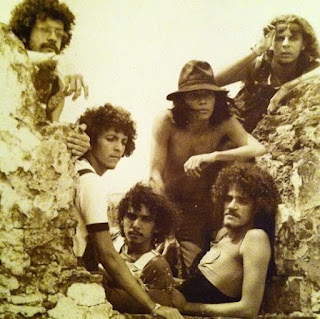







.jpg)

























Comments
Post a Comment